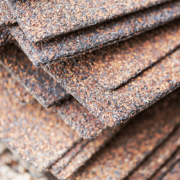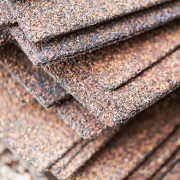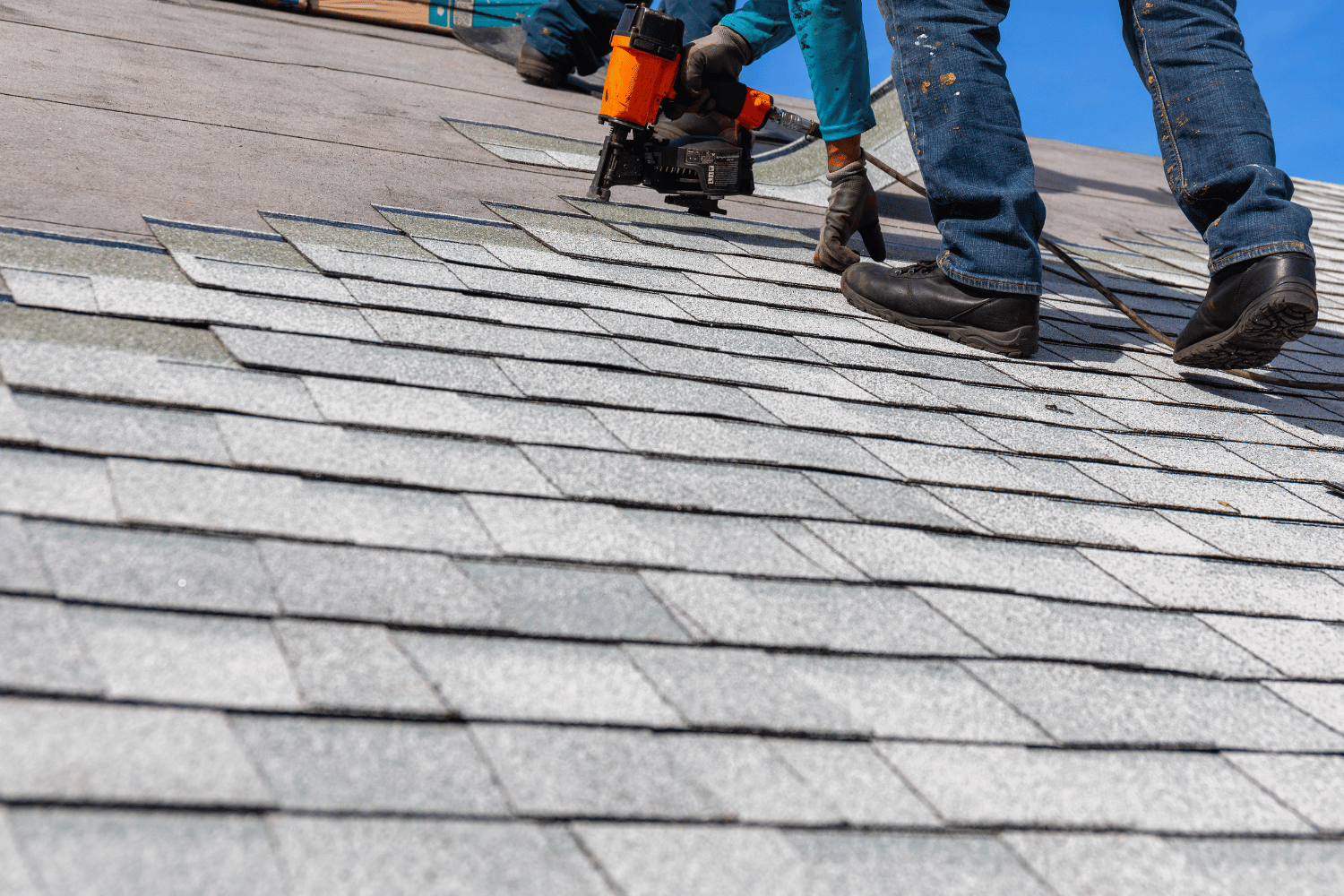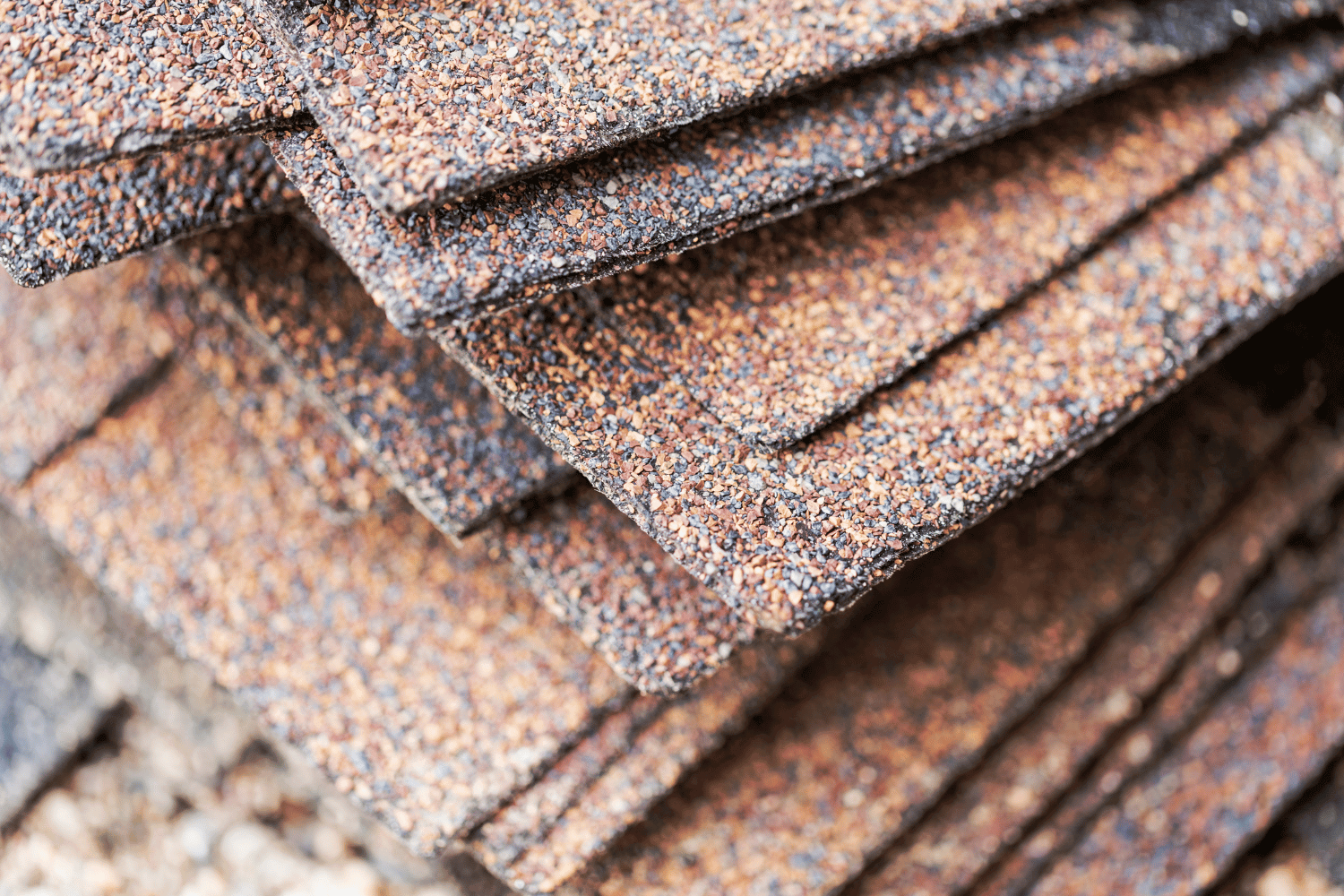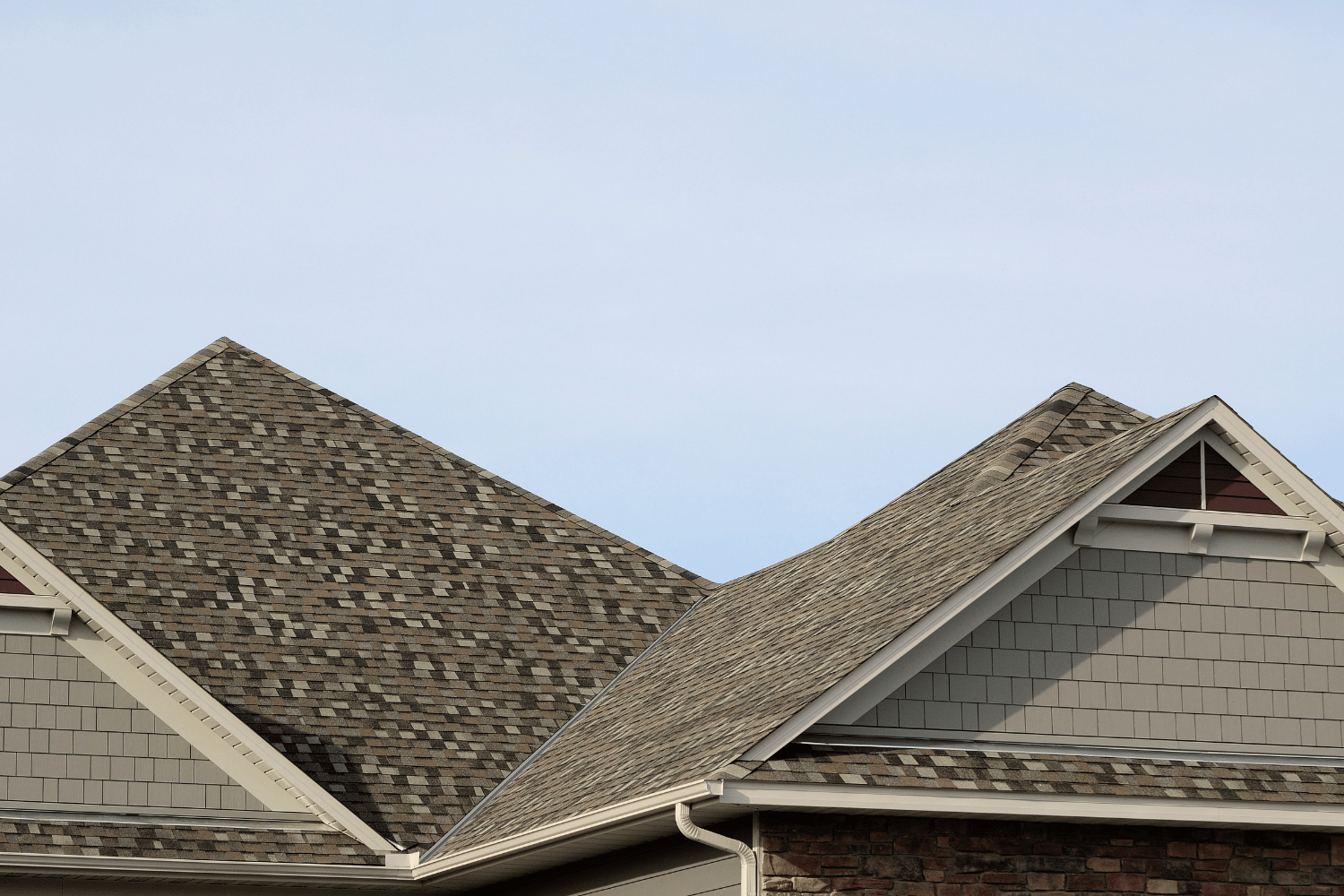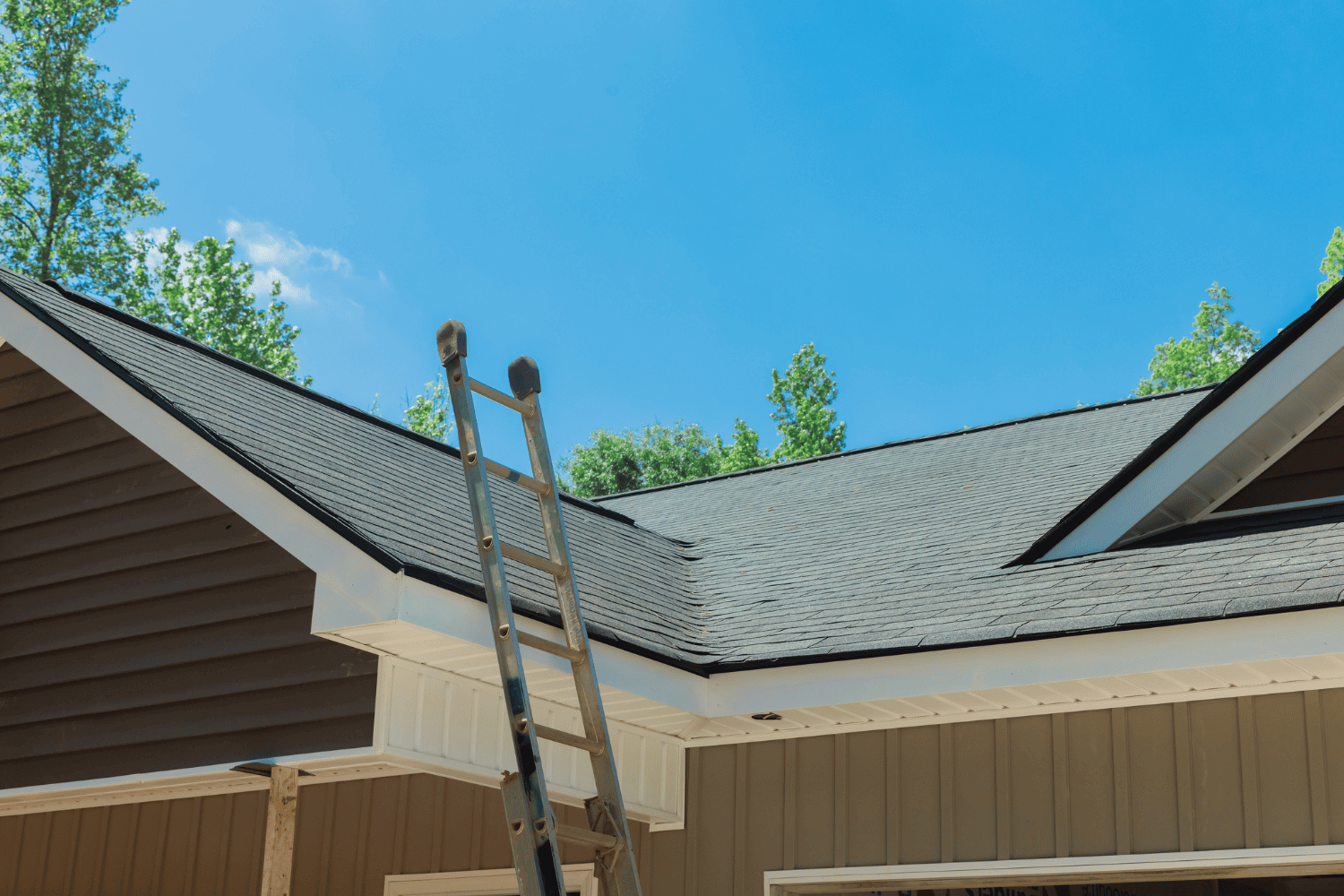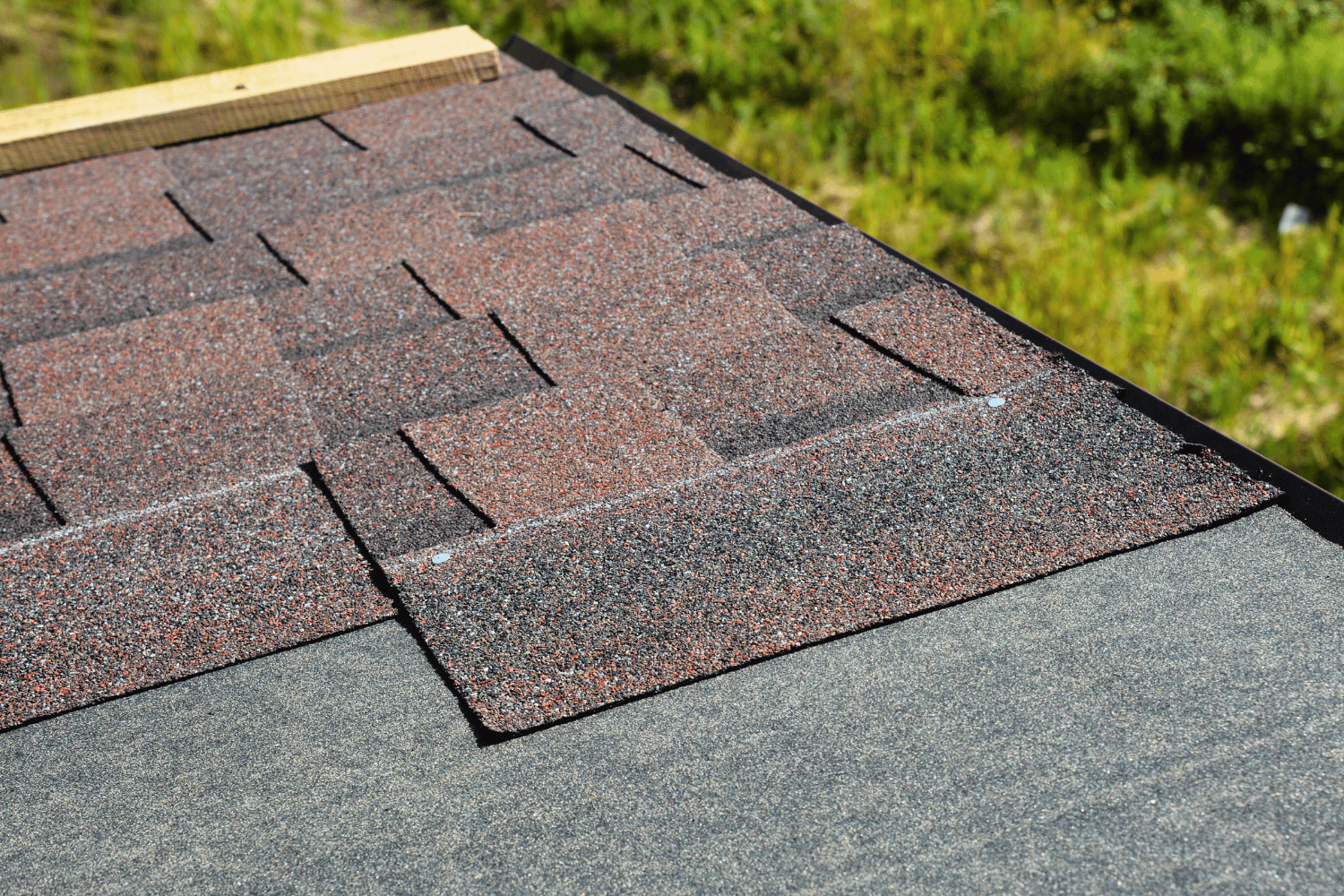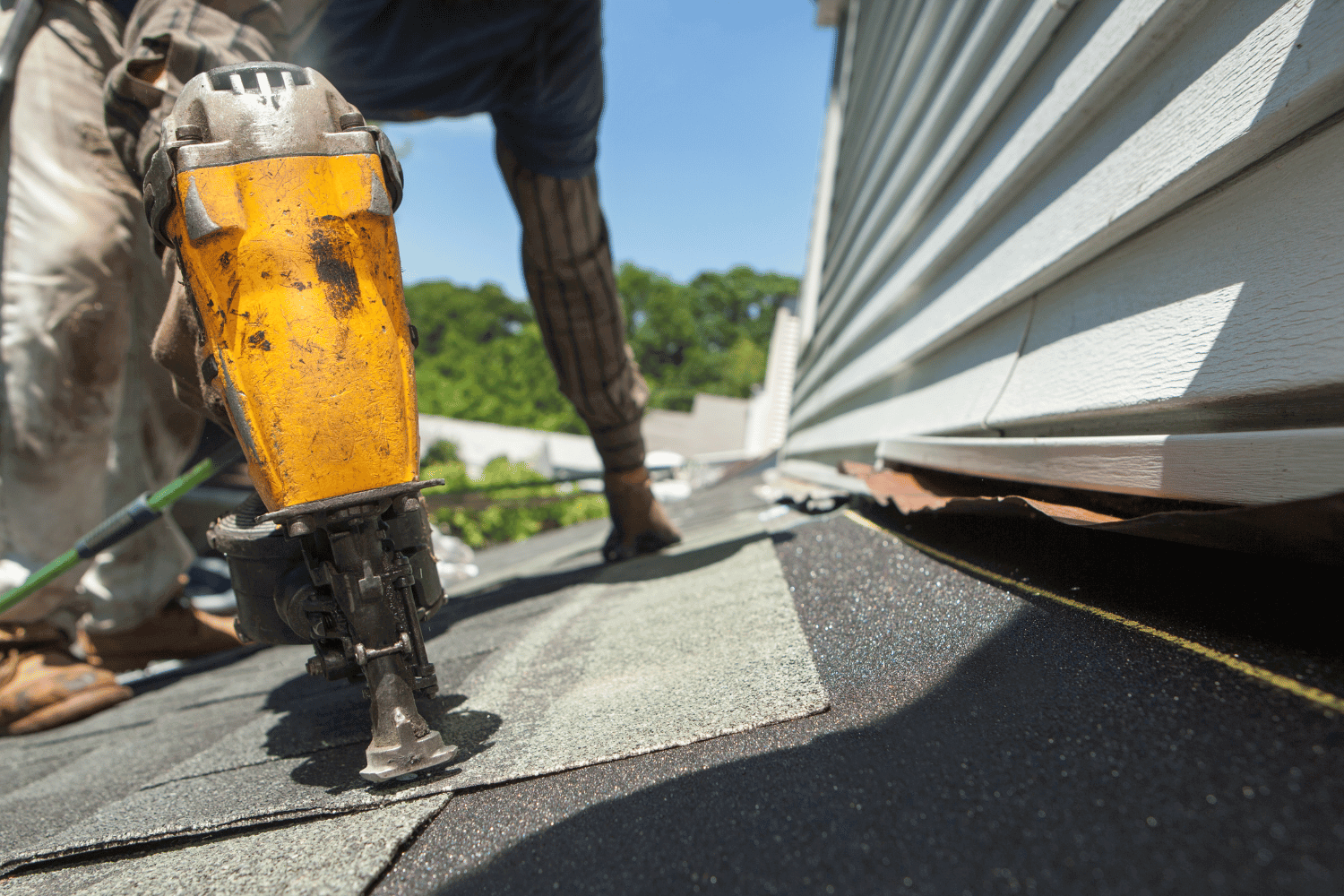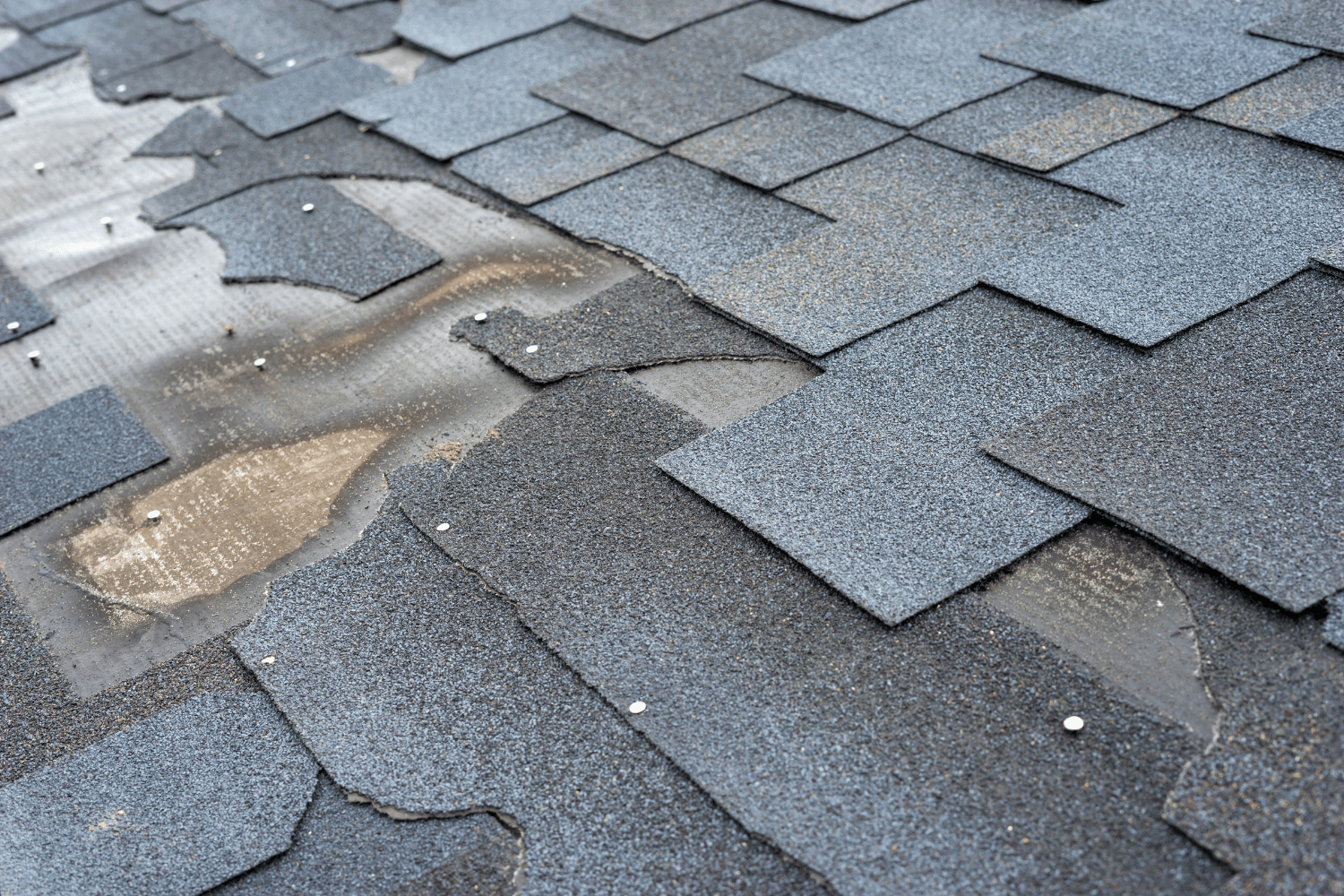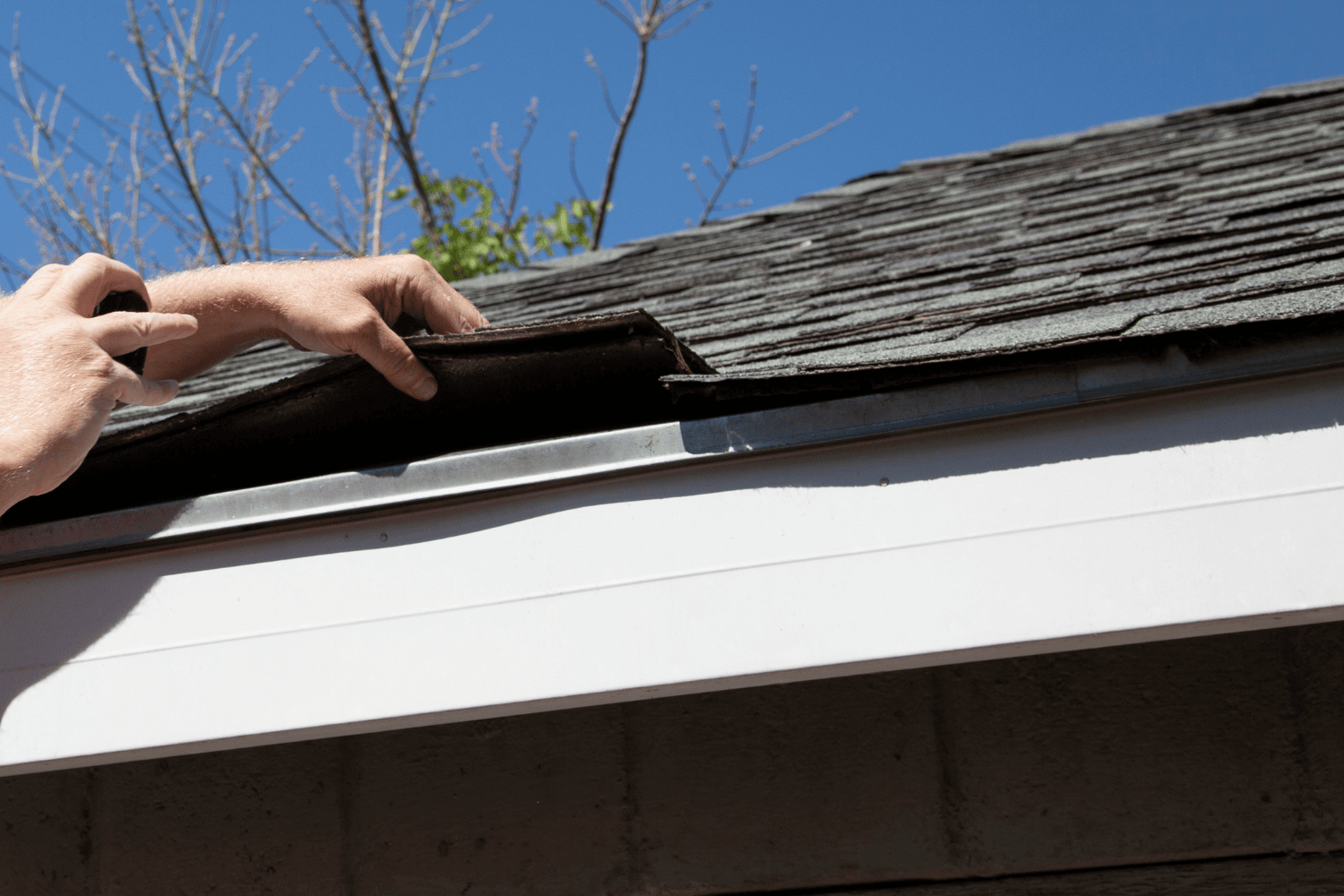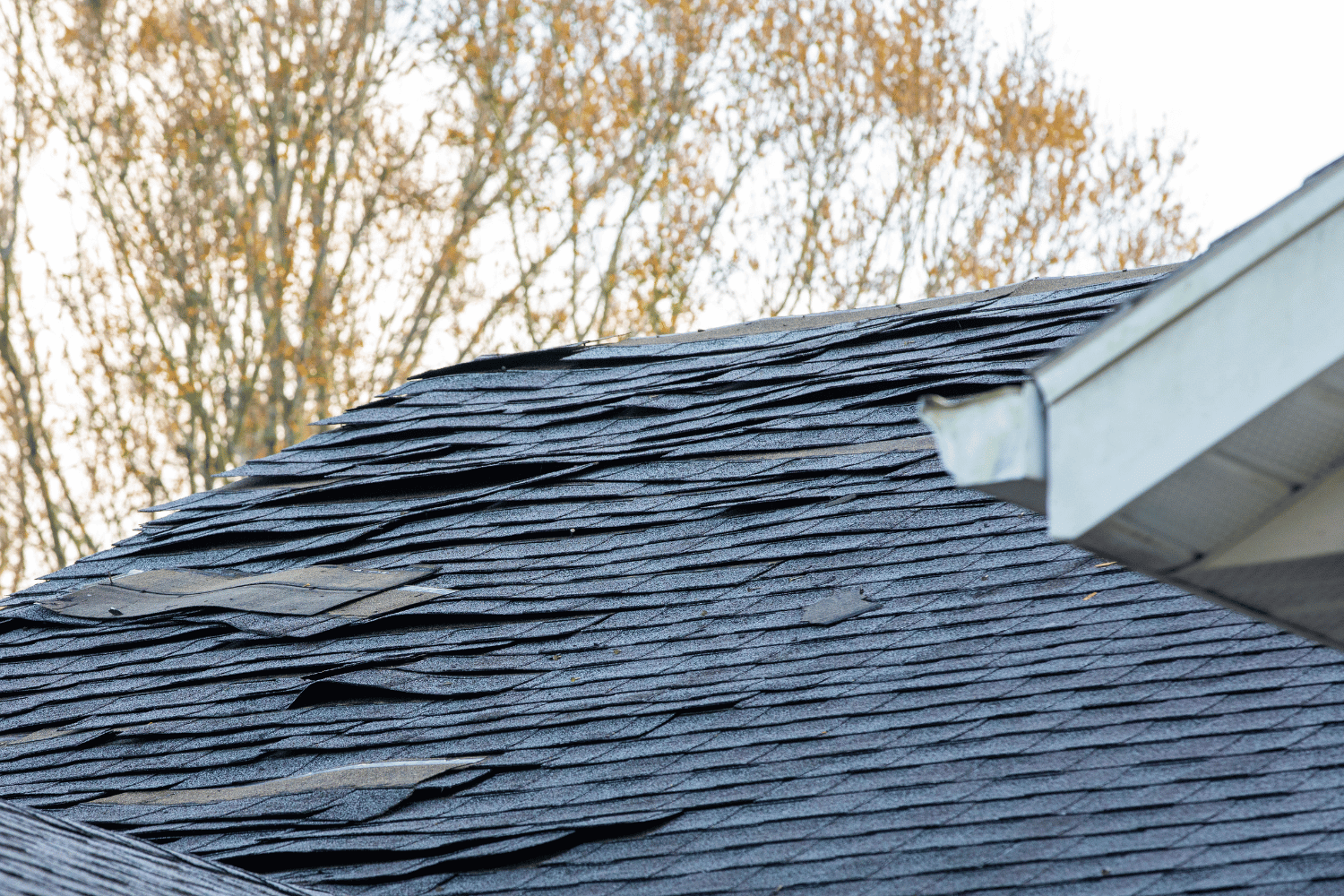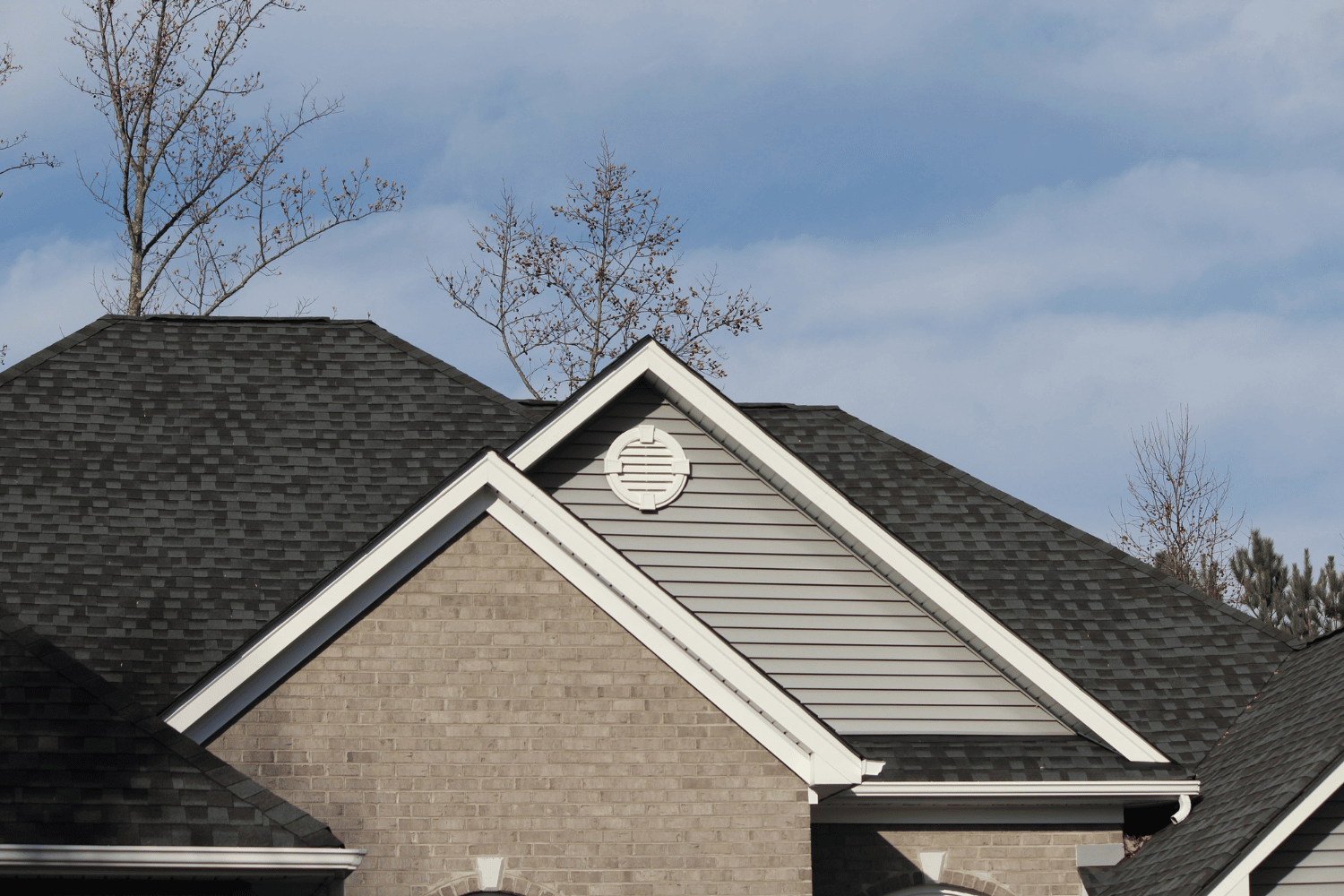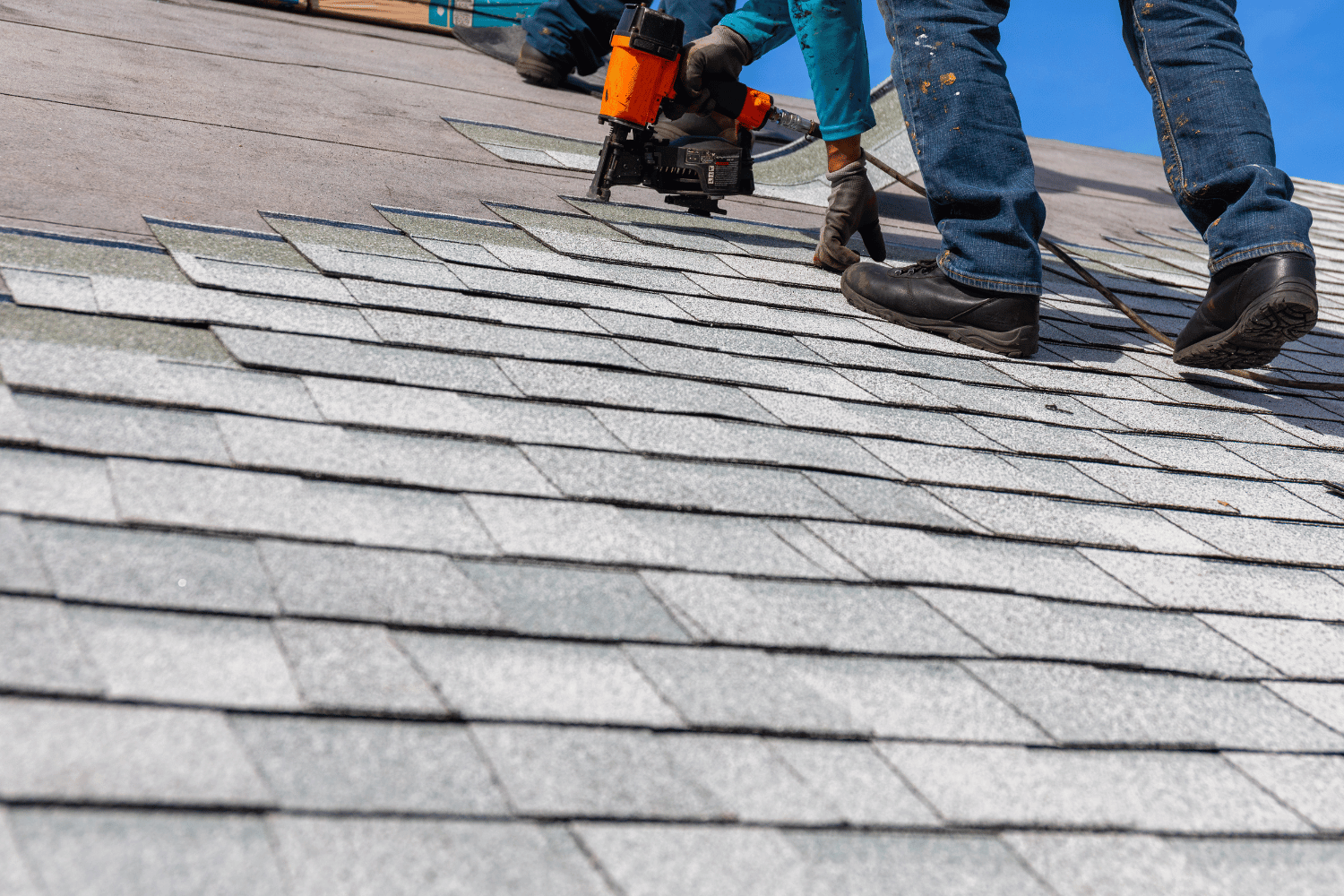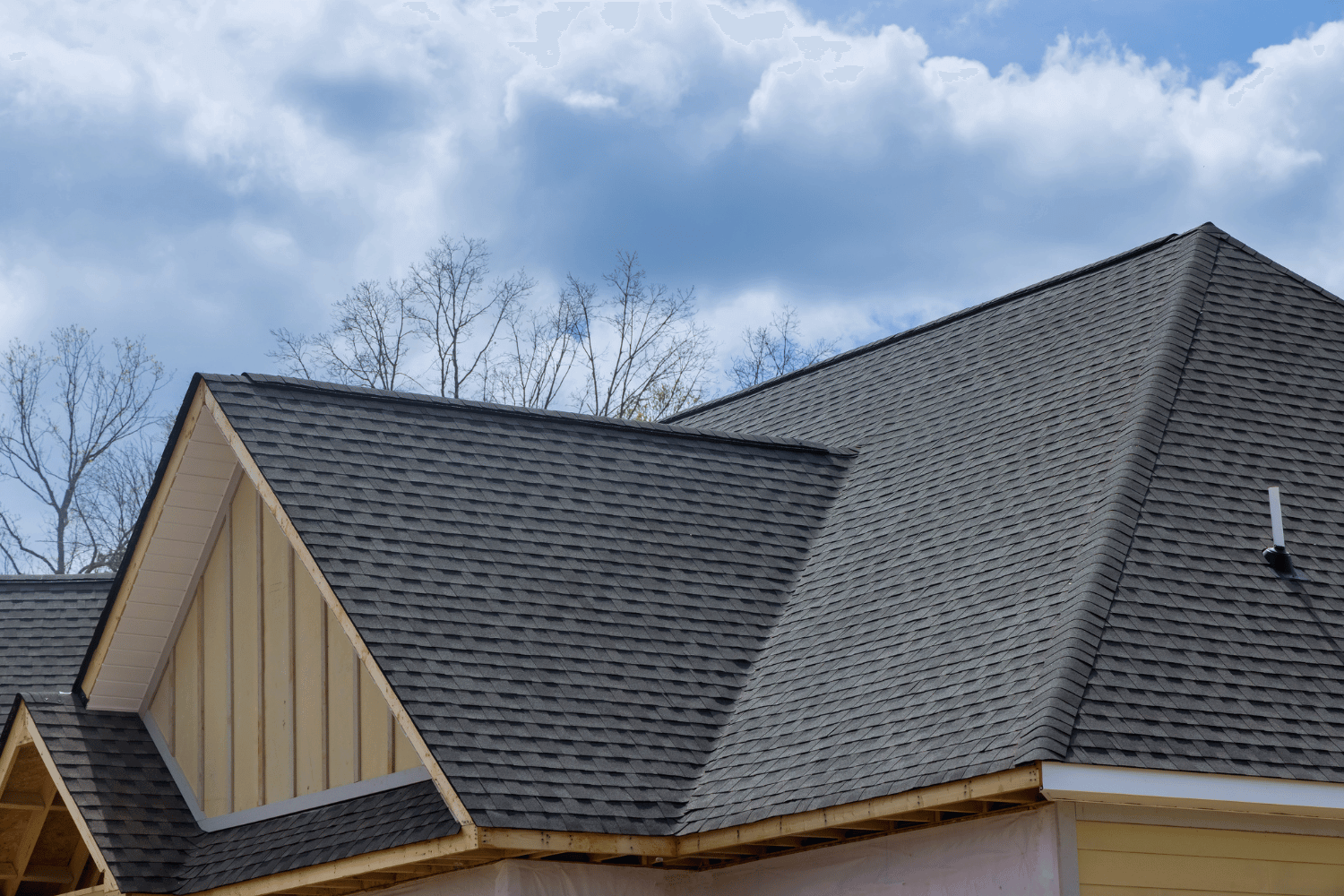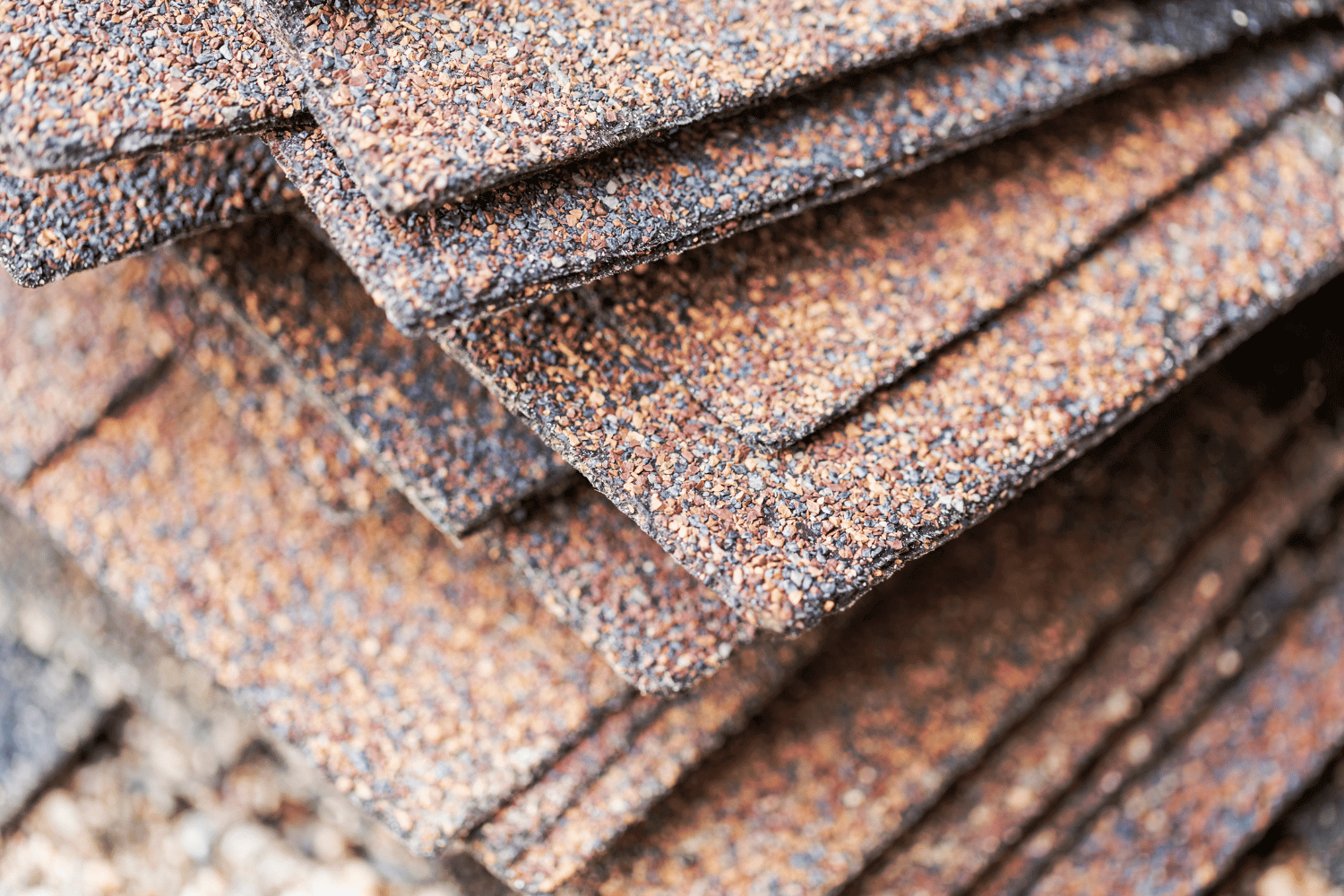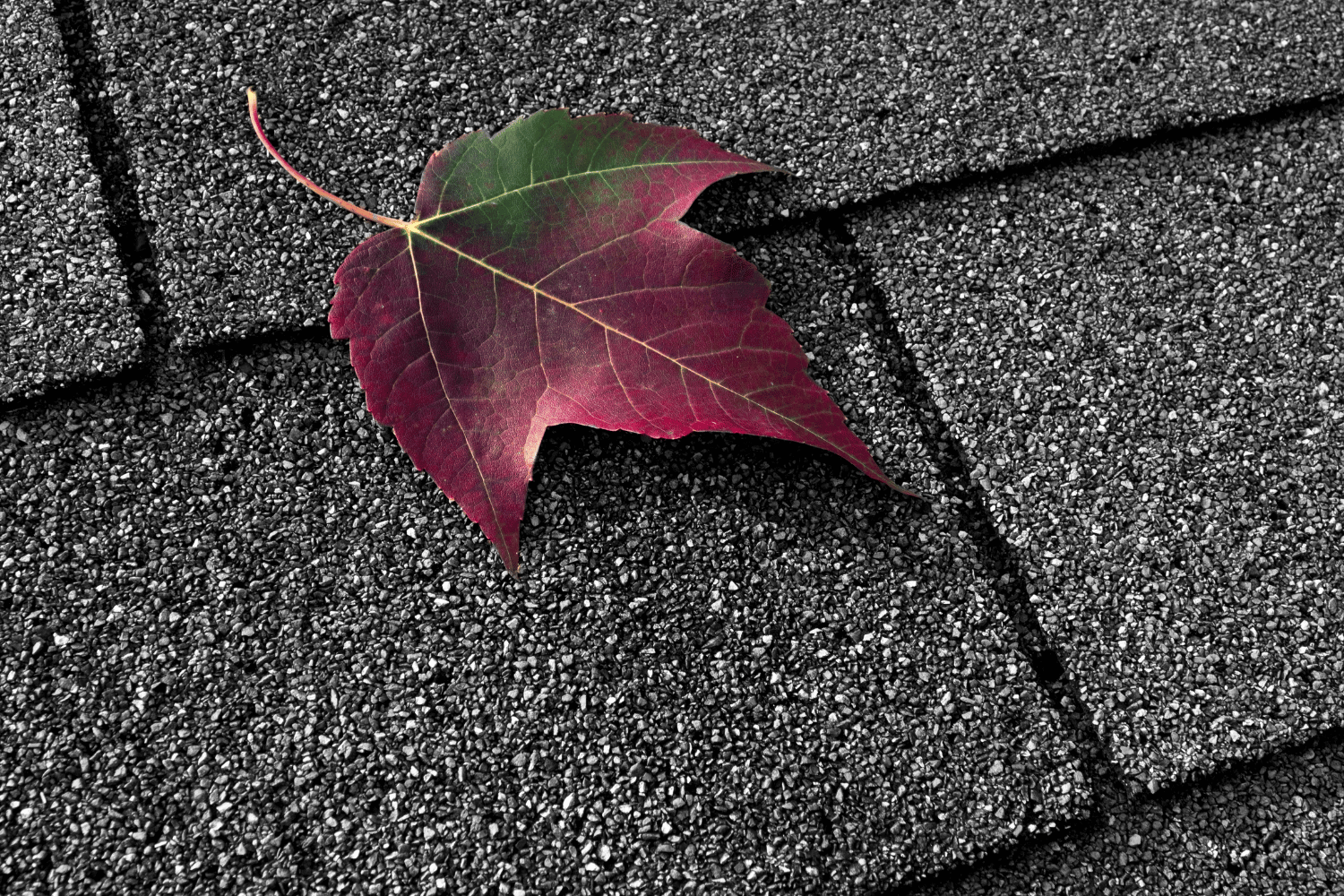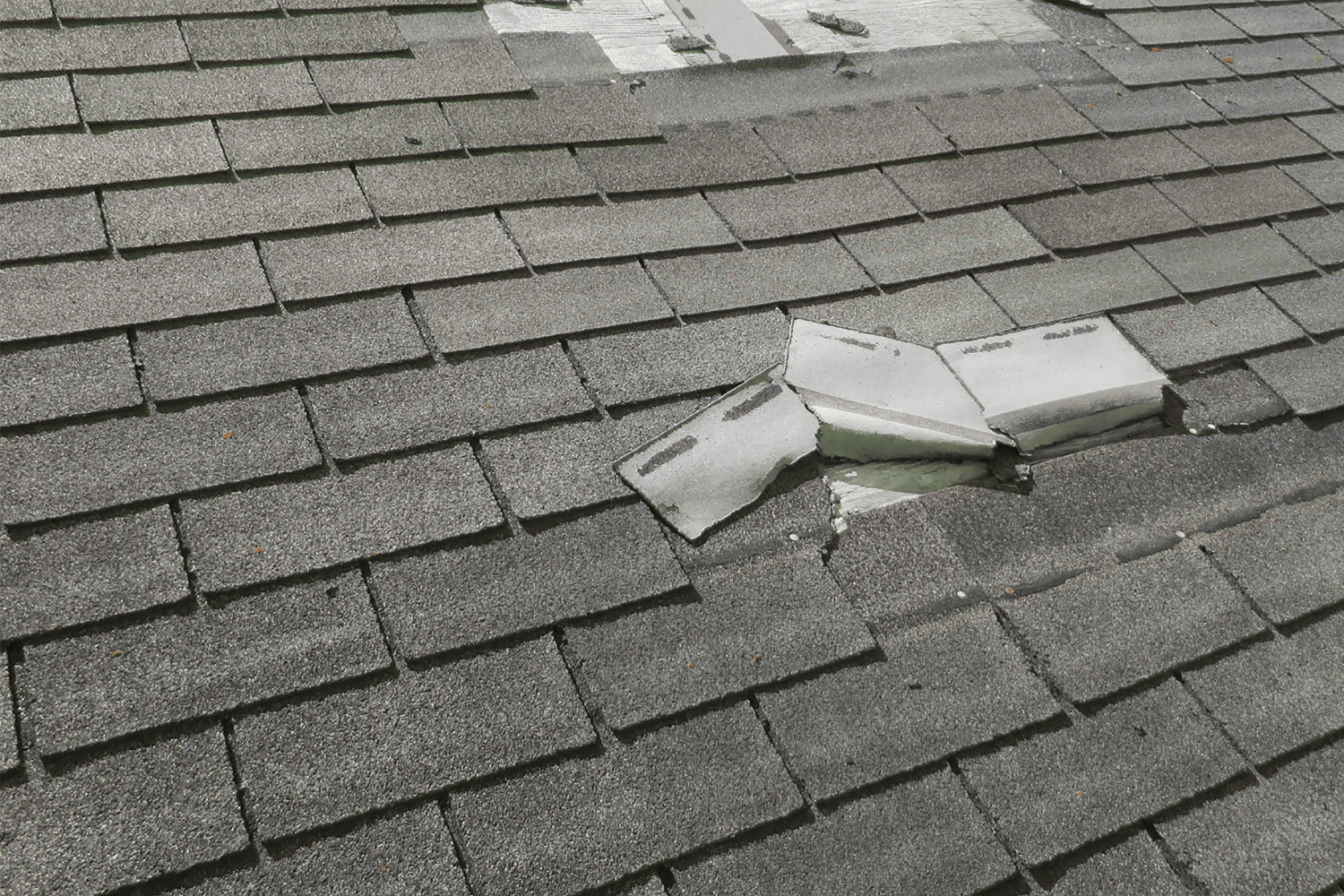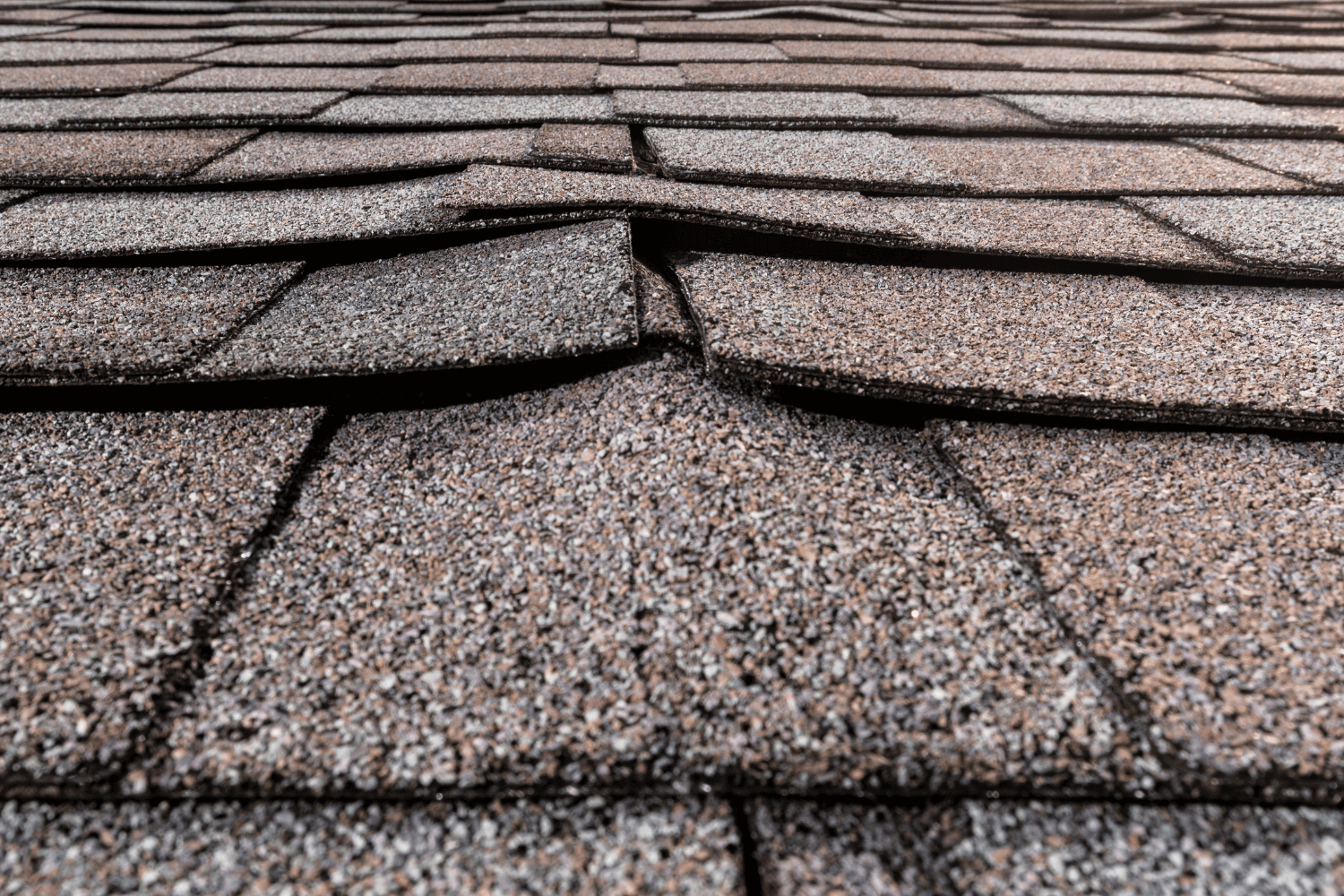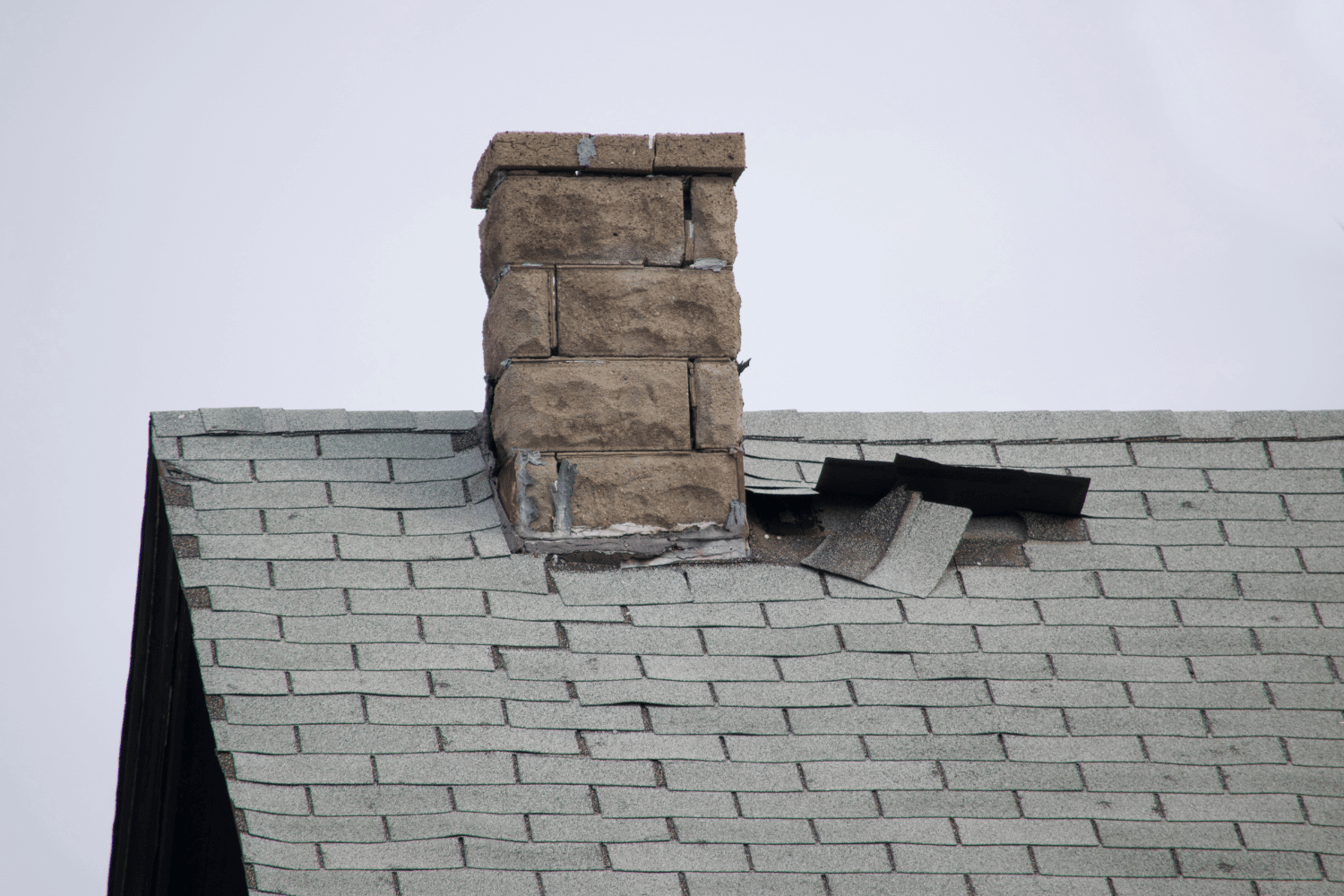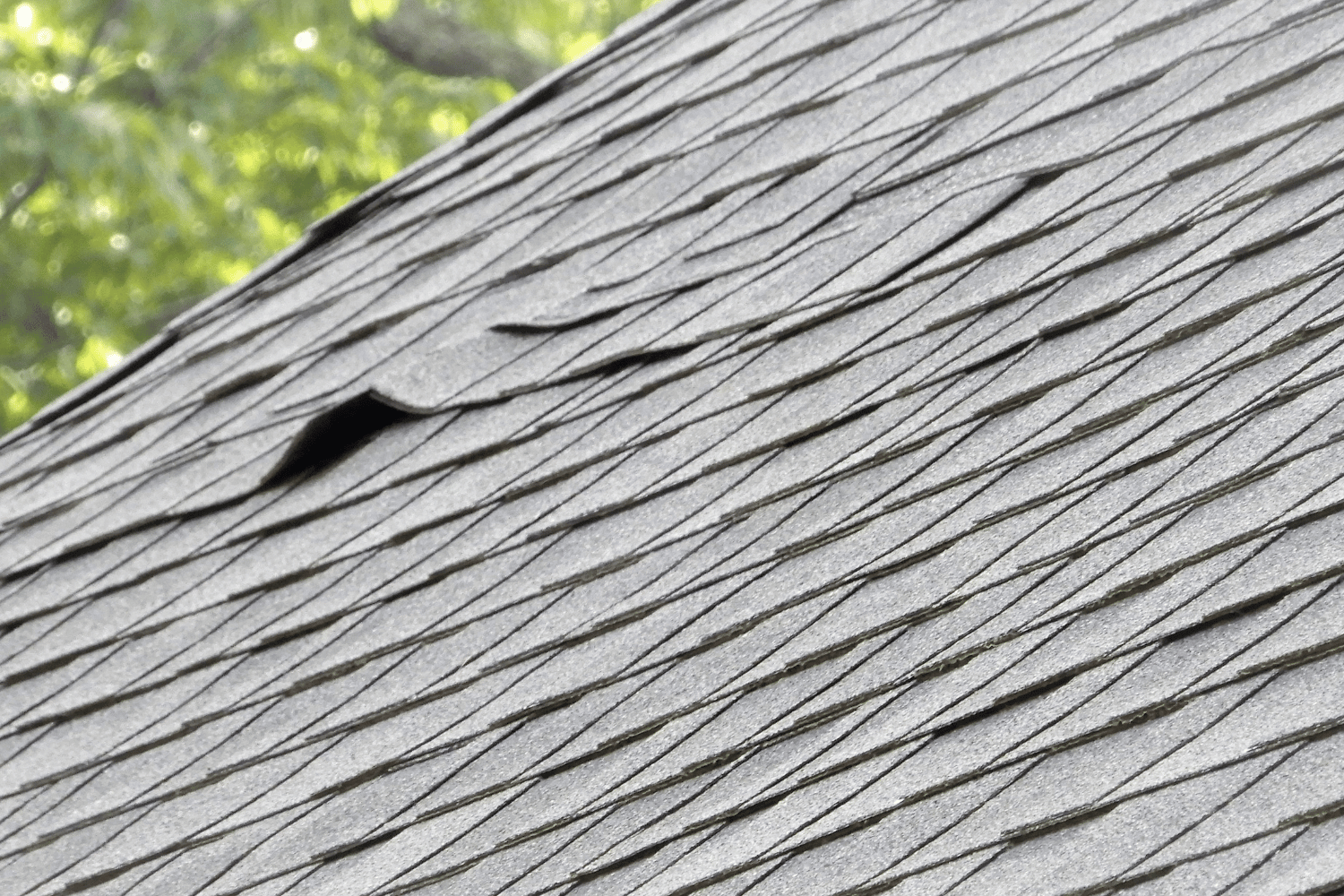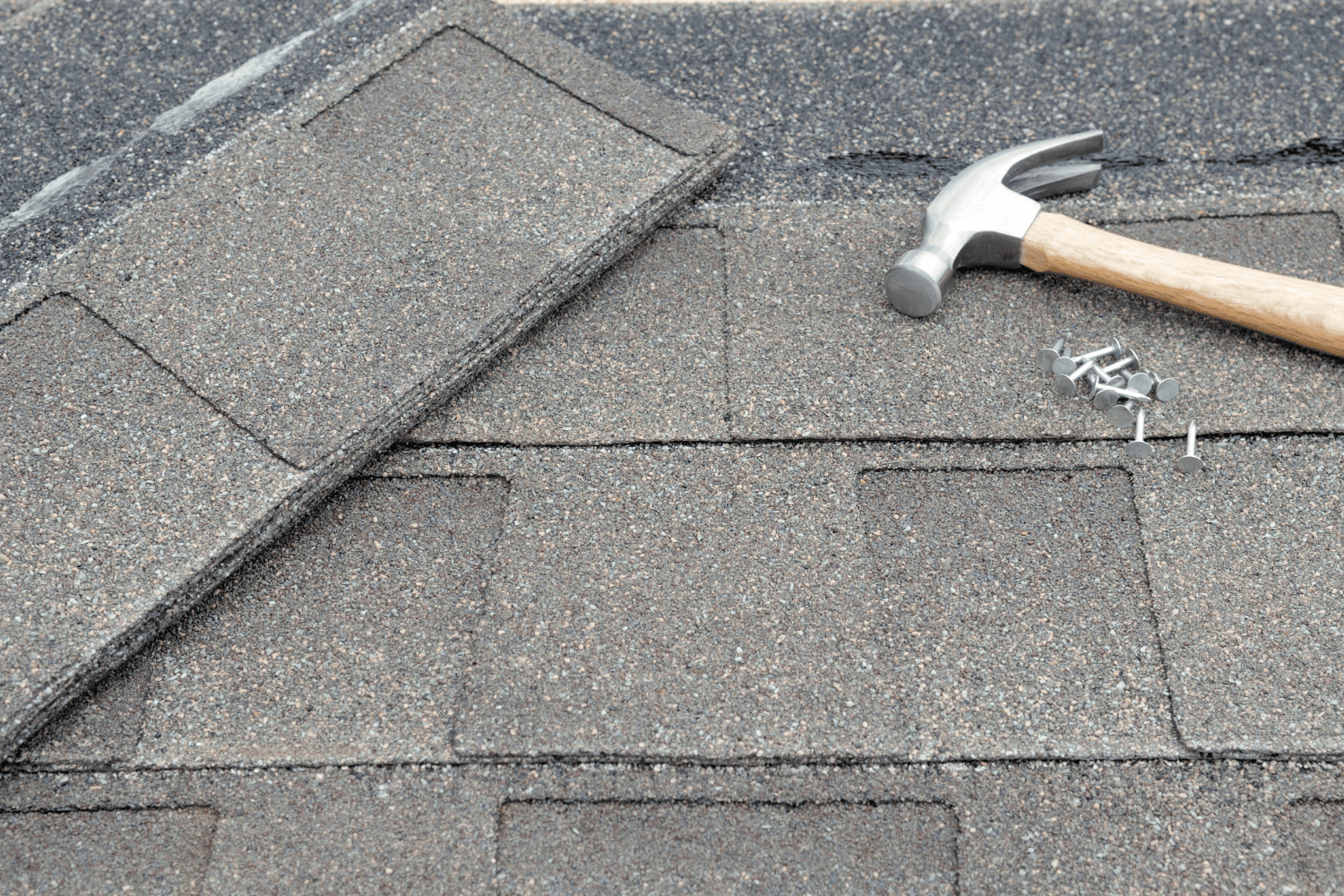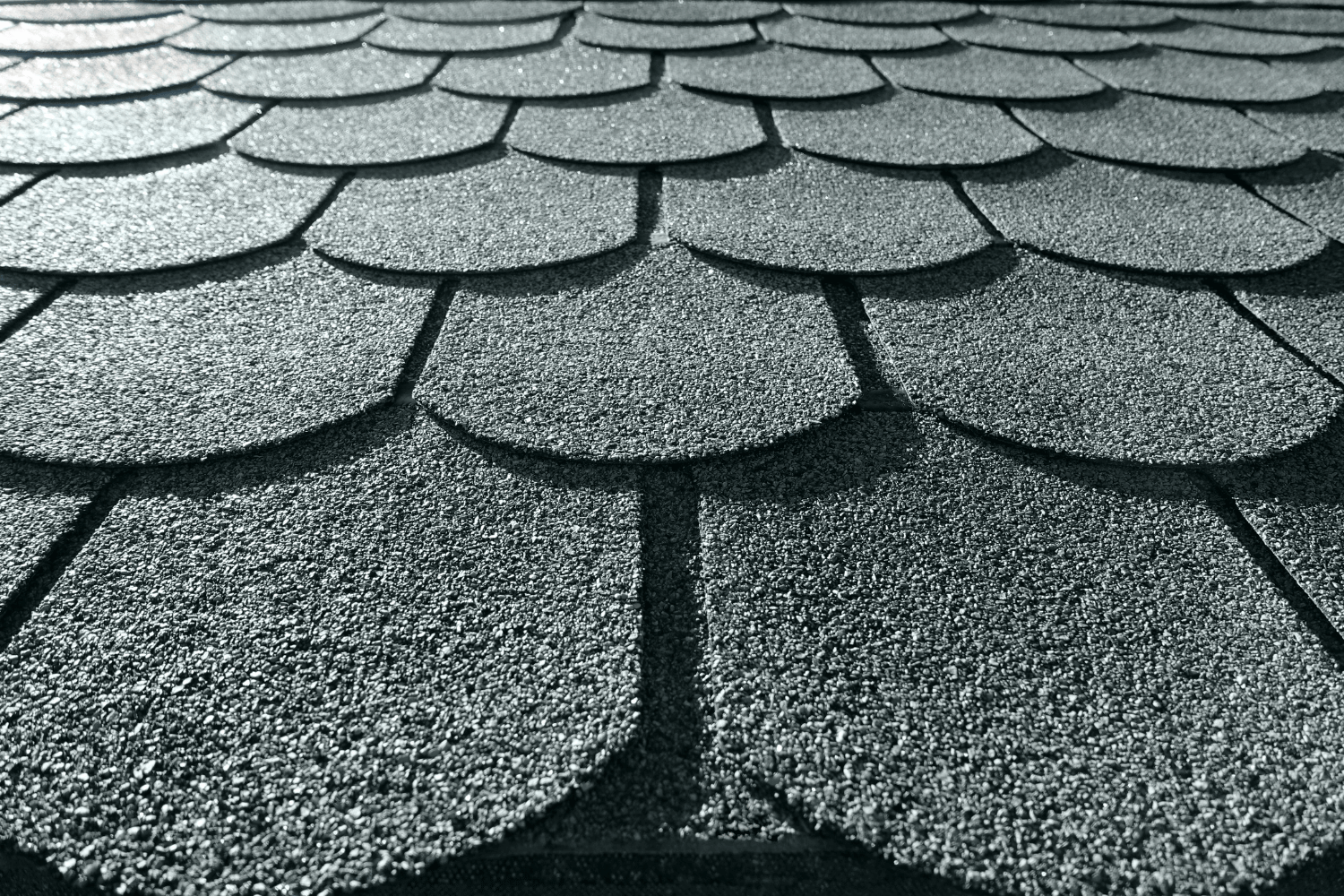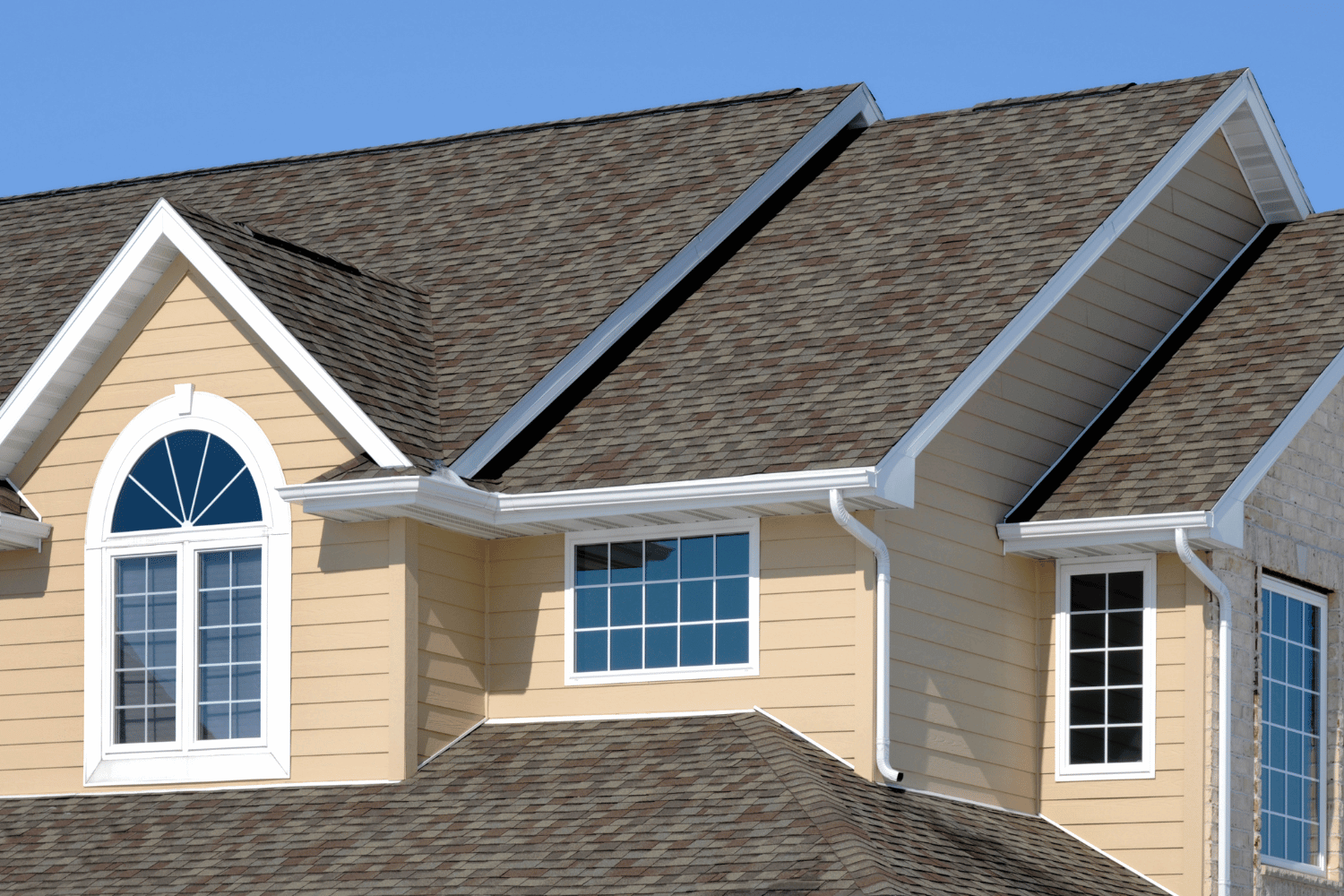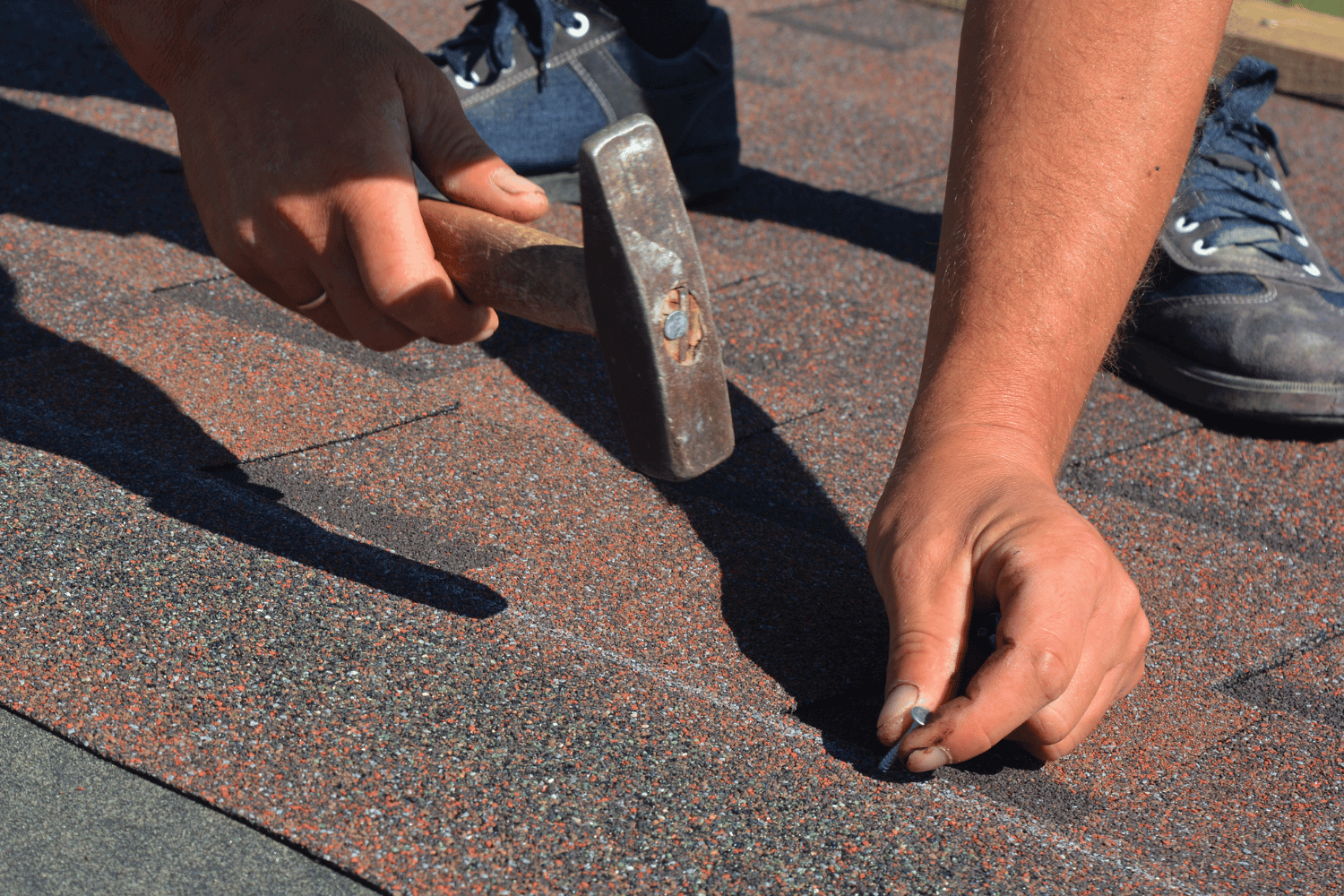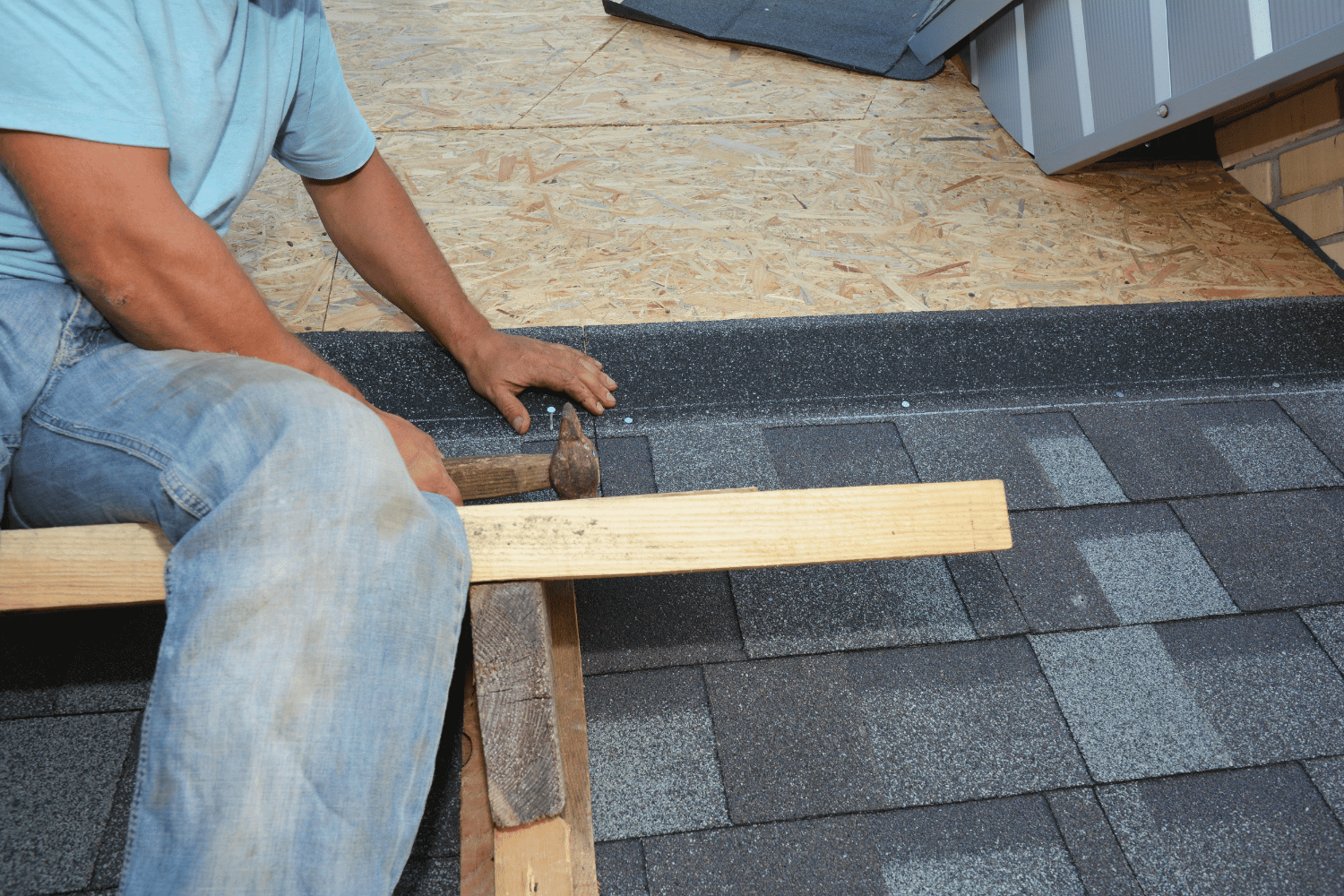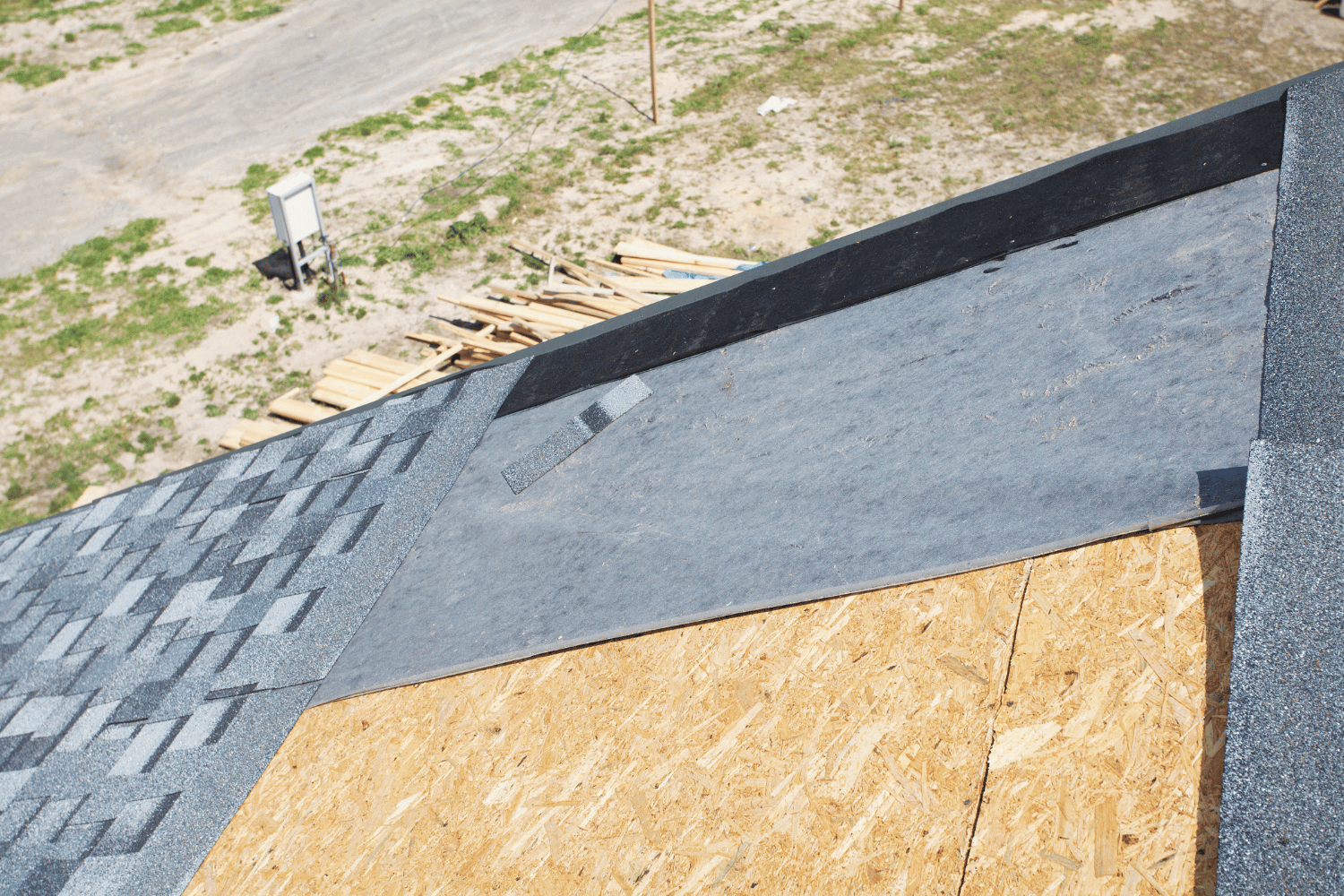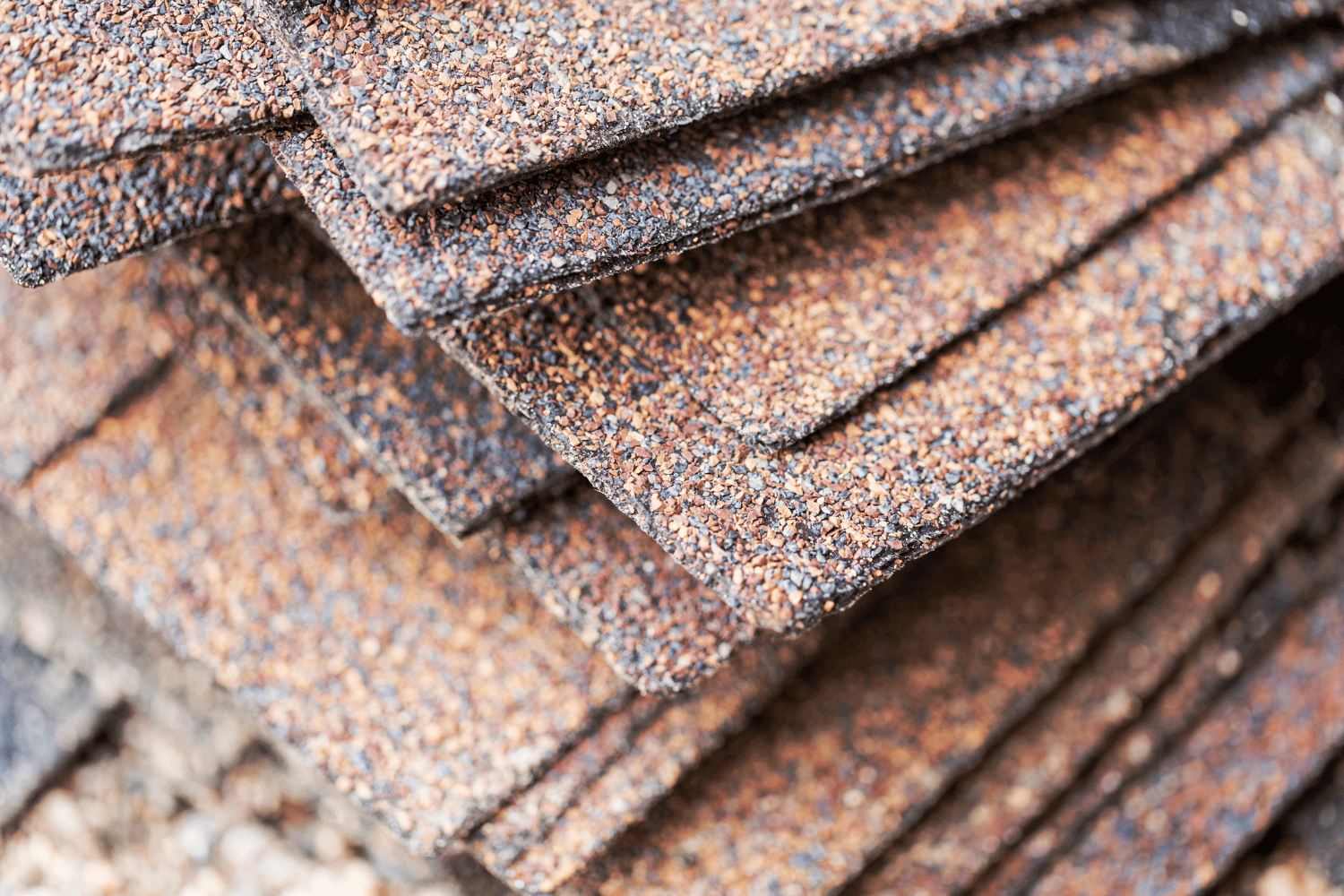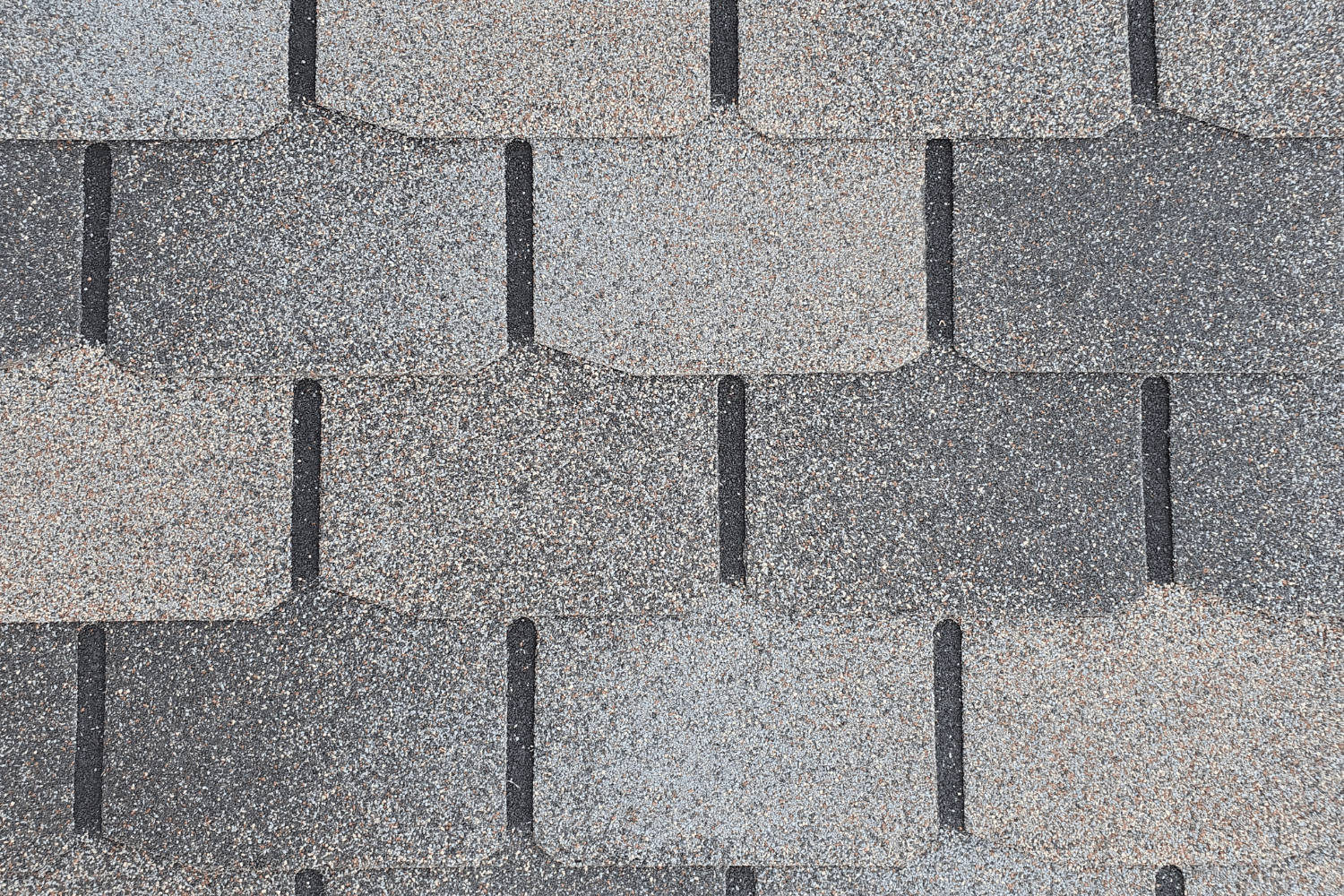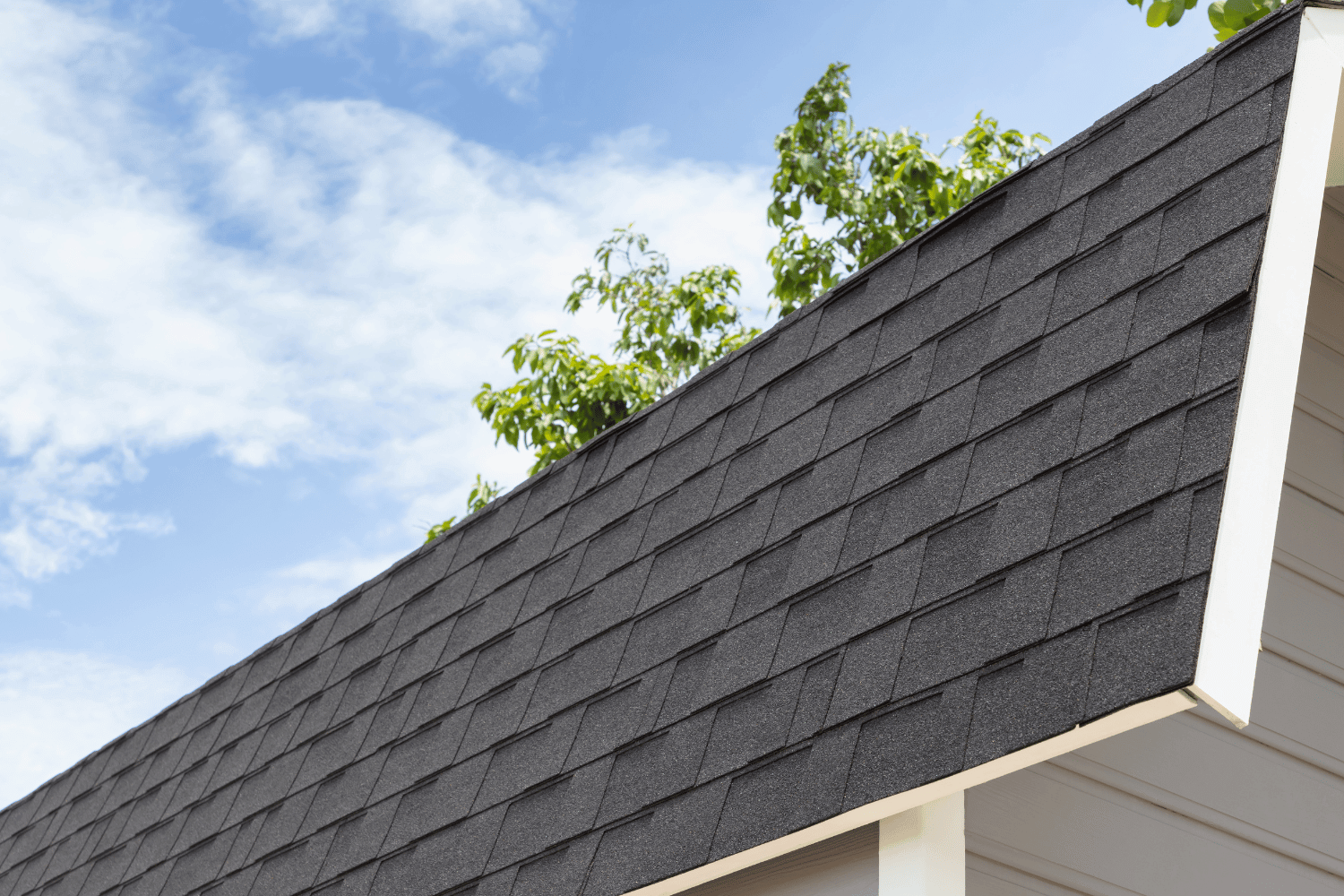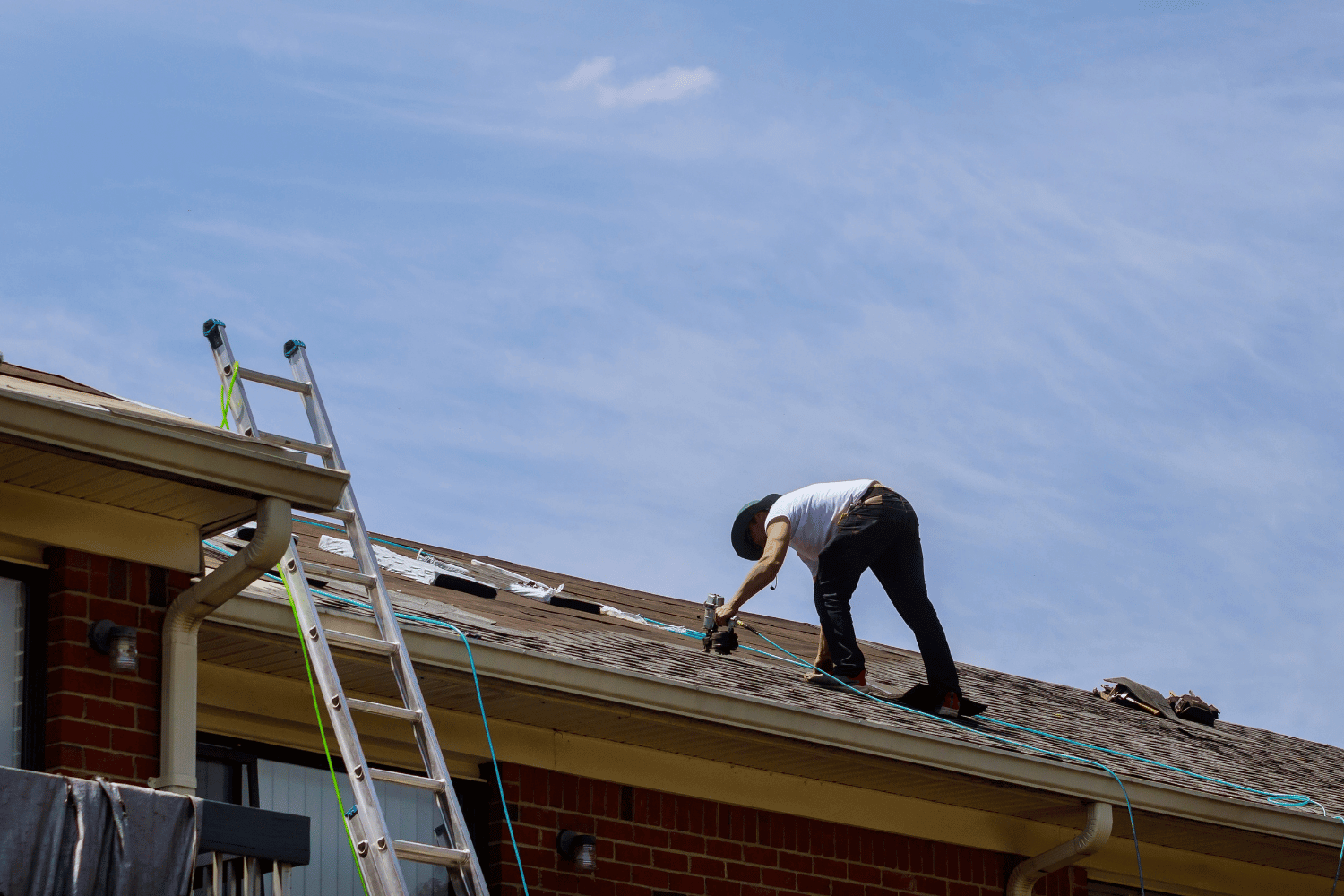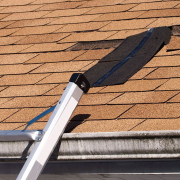How Long Does an Asphalt Roof Last?
When planning a roof replacement or assessing your current shingles, one of the most common questions homeowners ask is, “How long does an asphalt roof last?” The answer depends on several factors that affect the roof’s lifespan—from the materials used and climate exposure to installation quality and ongoing maintenance.
Homeowners can expect an asphalt roof to last anywhere from 15 to 30 years, depending on these influencing factors.
Understanding the average lifespan of an asphalt roof and how to maximize its performance helps protect your home and budget by ensuring you know what affects your roof’s lifespan.
Key Takeaways
- Most asphalt roofs last 15 to 30 years depending on material type.
- Owens Corning shingles offer top-tier durability and wind resistance.
- Regular inspections and maintenance can extend your roof’s life.
- Severe weather in the Mid-Atlantic shortens shingle longevity.
- Proper attic ventilation and professional installation are an important factor in determining how long an asphalt roof lasts.
Introduction to Asphalt Shingles
Asphalt shingles are the most widely used roofing material in the United States, thanks to their balance of affordability, durability, and straightforward installation. These shingles are constructed with a sturdy fiberglass base, which is then coated in asphalt for waterproofing and topped with mineral granules that shield the roof from damaging UV rays and harsh weather. Homeowners can choose between two main types: 3-tab shingles, which offer a flat, uniform look at a budget-friendly price, and architectural shingles, which are thicker, more durable, and provide a dimensional, high-end appearance. Understanding the differences between these options is crucial for making a smart roof investment that delivers long-lasting protection and curb appeal. Whether you’re installing a new roof or replacing old shingles, knowing the basics of asphalt shingles helps ensure your home stays protected and your roofing dollars are well spent.
The Average Lifespan of an Asphalt Roof
Standard three-tab asphalt shingles typically last 15 to 20 years, while architectural or dimensional shingles can last 25 to 30 years. Premium-grade shingles—like those offered by Owens Corning—may exceed 30 years when installed by certified professionals.
The lifespan range reflects both manufacturer specs and real-world performance under local weather conditions. Roofs exposed to direct sunlight, especially those with south-facing slopes, may have a shorter lifespan due to increased UV exposure and heat. In storm-prone areas like New Jersey, Pennsylvania, and Maryland, roof longevity often skews shorter due to wind, hail, snow, and freeze/thaw cycles, especially for roofs exposed to severe weather conditions. Knowing your roof’s age is also important for assessing its remaining lifespan and planning maintenance.
Factors That Shorten Roof Life
Several variables can cut the life expectancy of an asphalt shingle roof short:
- Severe Weather: Hail, high winds, and ice dams accelerate granule loss and edge lift. Wind-driven debris can crack shingles and cause cracks, leading to water infiltration.
- Improper Installation: Misaligned shingles, poor flashing, or inadequate nailing can lead to early failure.
- Inadequate Ventilation: Without proper airflow, attic heat builds up and cooks shingles from beneath.
- Neglected Maintenance: Clogged gutters and debris, as well as unchecked moss growth, promote water intrusion and rot.
If issues like poor ventilation or maintenance are left unchecked, they can lead to significant roof damage and future leaks. Water damage from rain can result in roof leaks and structural problems.
These risks highlight why certified installation and seasonal inspections are so important. If your roof is over 15 years old and showing signs of wear, a roof inspection is a smart next step.
How Material Type Impacts Roof Longevity
Shingle quality is one of the most important contributors to roof longevity. Dream Home Roofers installs Owens Corning shingles, known for their reinforced nailing zones, algae resistance, and industry-leading wind ratings.
Here’s how common asphalt products compare:
| Shingle Type | Lifespan Estimate | Notable Traits |
|---|---|---|
| 3-Tab | 15–20 years | Flat, cost-effective, lower wind rating |
| Architectural Asphalt | 20–30 years | Thicker, layered, better wind resistance, enhanced design |
| Premium/Designer | 30–40 years | High curb appeal, reinforced backing |
All Owens Corning roofing systems installed by Platinum Preferred Contractors come with extended warranties, offering peace of mind and long-term value.
Attic Ventilation and Asphalt Roofs
Proper attic ventilation is a key factor in maximizing your asphalt roof’s lifespan. When an attic is properly ventilated, it allows heat and moisture to escape, preventing the buildup that can cause shingles to deteriorate prematurely. Without adequate attic ventilation, you may notice cracked shingles, curled shingles, or even granule loss—clear signs that your roof is under stress. Over time, this can lead to costly repairs or the need for early roof replacement. Homeowners can help protect their asphalt roof by ensuring their attic has enough vents, such as ridge or soffit vents, and by keeping insulation in good condition. Regular roof inspections are also important for catching ventilation issues before they lead to bigger problems. By prioritizing proper attic ventilation, you can help your asphalt roof last longer and avoid unnecessary wear and tear.
Signs Your Asphalt Roof May Be Nearing the End
Spotting deterioration early can help you act before leaks or structural damage sets in. Common signs include:
- Curling or cracking shingles
- Bald spots where granules are missing
- Dark patches, which indicate areas where granules are missing and the underlying asphalt is exposed
- Discoloration or streaks from algae
- Frequent repairs after storms
- Interior water stains or attic leaks
If your roof has suffered storm damage from severe weather, such as hail or strong winds, you may be eligible to file an insurance claim to cover repair costs.
If you notice any of these issues, a certified roof repair specialist can assess the damage and determine if repair or replacement is the better option.
How to Extend the Life of Your Asphalt Roof
With the right upkeep, you can stretch your roof’s service life well beyond the national average:
- Schedule roof inspections every 1–2 years, and have your roof regularly inspected by a professional roofer to catch issues early
- Keep your roof clean and free of debris to help extend its lifespan
- Clean gutters regularly to avoid ponding
- https://dreamhomeroofers.com/service-area/maryland/Trim overhanging branches that can scrape shingles
- Address flashing and chimney leaks promptly
- Ensure your attic is properly insulated and ventilated
If your roof has extensive damage or is nearing the end of its lifespan, it may be necessary to replace your asphalt roof rather than repair it. In some cases, replacement is the best option when repairs are no longer effective.
Homeowners in Turnersville, King of Prussia, Laurel, and other Mid-Atlantic towns face extra wear from seasonal extremes—making proactive maintenance even more essential.
Energy Efficiency and Asphalt Roofs
Today’s asphalt roofs can do more than just protect your home—they can also help you save on energy costs. Energy-efficient asphalt shingles, including those with cool roof technology, are designed to reflect more sunlight and absorb less heat, keeping your home cooler during hot weather. This not only reduces your reliance on air conditioning but also helps extend your roof’s lifespan by minimizing heat-related wear. Homeowners can further boost energy efficiency by ensuring their attic is properly ventilated and insulated, which prevents heat from building up and affecting both comfort and utility bills. By choosing energy-efficient asphalt shingles and maintaining proper attic ventilation, you can make your roof work harder for you—saving money and reducing your environmental impact at the same time.
Environmental Impact of Asphalt Roofs
While asphalt roofs offer many benefits, it’s important to consider their environmental impact. Traditional asphalt shingles are not biodegradable and can remain in landfills for centuries after they’re replaced. The manufacturing process for asphalt shingles also consumes significant energy and raw materials. However, the roofing industry is evolving, with many manufacturers now offering eco-friendly asphalt shingles made from recycled or sustainable materials. Homeowners can further reduce their roof’s environmental footprint by working with a roofing company that recycles old shingles or donates them to recycling facilities. By making informed choices about materials and disposal, you can help ensure your asphalt roof not only protects your home but also supports a more sustainable future.
Warranty Coverage for Owens Corning Shingles
As an Owens Corning Platinum Preferred Contractor, Dream Home Roofers can offer exclusive warranty coverage not available to most contractors. This includes:
- Lifetime limited warranties on most shingles
- TruPROtection® coverage against early material defects
- Wind and algae resistance warranties
To qualify for warranty coverage, shingles must be installed as part of a complete Owens Corning roofing system by a certified roofing contractor. These manufacturer-backed protections ensure lasting performance when installed by trained crews.
Ready to Schedule a Roof Assessment?
Whether you’re tracking your asphalt roof’s age or preparing for an upgrade, knowing how long an asphalt roof lasts helps you plan ahead. Schedule a no-obligation roof inspection today with Dream Home Roofers to find out how much life your shingles have left—and what options best fit your home’s future.
Request Your Roof Inspection Now
FAQs
How long do asphalt roofs last in snow-prone areas like New Jersey and Pennsylvania? In regions with snow and ice, asphalt shingles may only last 15–20 years unless properly maintained and ventilated. Snow and ice buildup can shorten an asphalt roof’s lifespan if not properly addressed.
Can you extend a roof’s life without replacing it? Yes. Routine inspections, proper ventilation, and timely minor repairs can prevent early failure.
Do architectural shingles last longer than 3-tab? Absolutely. Architectural shingles typically last 5–10 years longer due to their thicker, multi-layered construction.
Is a warranty transferable if I sell my house? Most Owens Corning warranties are transferable once within the first ten years, which adds resale value.
What’s the best way to check my roof’s age? Look for building permits, contact your installer, or request a professional inspection for an age estimate.

